Unlock Your Potential in Advanced AI & Machine Learning Program.
Embark on a Journey to Success with DIANA Advanced Tech Academy's Unparalleled AI & Machine Learning Program.
Introduction to the world's most renowned AI & Machine Learning Program brought to you by DIANA Advanced Tech Academy. With a solid reputation for excellence and trust, we offer you the opportunity to build a thriving career in the field of Advanced AI & Machine Learning.
Course Offered
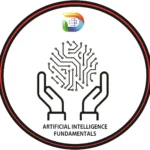
Diana Certified Artificial Intelligence Fundamentals
Overview
Discover the cutting-edge realm of artificial intelligence with the Diana Certified Artificial Intelligence Fundamentals course. This comprehensive program provides learners of all backgrounds with essential knowledge of AI concepts, technologies, and applications. From understanding the fundamentals and key AI concepts to exploring practical applications and ethical considerations, this self-paced course equips you to navigate the AI landscape confidently. Whether you’re a student, professional, or tech enthusiast, this course offers a pathway to grasp AI’s transformative potential and earn a coveted certification upon completion. Join us today and embark on a journey into the future of artificial intelligence.
Who is the Course For
This course is designed to cater to a diverse audience, including students, working professionals, entrepreneurs, and tech enthusiasts. Whether you are looking to kickstart your career in artificial intelligence, gain a deeper understanding of AI concepts, or simply explore the exciting world of AI, this course welcomes individuals from all backgrounds and expertise levels. No prior AI experience is required, making it accessible to anyone eager to learn about the fundamentals of artificial intelligence and its far-reaching impact across industries. Join us on this educational journey, and discover how AI can shape your future.
Tools We Use
In this course, we leverage a range of industry-standard tools and platforms to provide you with a hands-on and immersive learning experience. These tools are carefully selected to enhance your understanding and practical skills in artificial intelligence. Throughout the course, you will have the opportunity to work with:
Python: Python is the primary programming language for AI development, and we will use it extensively for coding exercises and projects.
Jupyter Notebooks: Jupyter Notebooks offer an interactive and user-friendly environment for experimenting with AI algorithms and models.
TensorFlow and PyTorch: These deep learning frameworks are essential for building and training neural networks.
Scikit-Learn: Scikit-Learn provides a robust library for machine learning tasks and model evaluation.
Natural Language Toolkit (NLTK): NLTK is used for natural language processing (NLP) exercises and text analysis.
OpenAI’s GPT-3: We explore the capabilities of state-of-the-art AI models like GPT-3 for language understanding and generation.
Google Colab: Google Colab allows for cloud-based Python development, enabling you to access powerful GPU resources for AI tasks.
Data Visualization Tools: We employ data visualization libraries such as Matplotlib and Seaborn to create informative charts and plots.
GitHub: GitHub serves as a collaborative platform for code sharing and version control, facilitating project collaboration.
Online AI Datasets: Access to publicly available AI datasets for machine learning and deep learning experiments.
These tools are carefully integrated into the course curriculum to provide you with practical experience and proficiency in AI development. As you progress through the course, you will become proficient in using these tools to tackle real-world AI challenges and projects effectively.
What You Will Learn
Throughout the Diana Certified Artificial Intelligence Fundamentals course, you will embark on a comprehensive learning journey that equips you with essential knowledge and practical skills in the field of artificial intelligence (AI). By the end of the course, you will have:
Foundational Understanding: Gained a clear and comprehensive understanding of what artificial intelligence is and its historical significance.
Key AI Concepts: Explored fundamental AI concepts, including machine learning, neural networks, natural language processing, and computer vision.
AI Applications: Discovered how AI is being applied across various industries, from healthcare and finance to entertainment and autonomous vehicles.
Practical Experience: Gained hands-on experience with AI through practical projects and exercises, allowing you to apply what you’ve learned.
Ethical Considerations: Examined the ethical implications of AI and responsible AI development, ensuring you can navigate AI’s societal impact.
Emerging Trends: Explored emerging AI trends and technologies, including deep learning and reinforcement learning, to stay informed about the future of AI.
Critical Thinking: Developed the ability to critically assess AI applications, recognizing both opportunities and challenges.
Certification: Earned the Diana Certified Artificial Intelligence Fundamentals certification, demonstrating your expertise and commitment to AI knowledge.
This course is designed to provide you with a strong foundation in AI, making it accessible to individuals of all backgrounds and expertise levels. Whether you’re looking to start a career in AI, enhance your existing knowledge, or simply explore the limitless possibilities of artificial intelligence, this course is your gateway to the world of AI innovation and transformation. Join us and unlock the potential of AI today.
Prerequisites for the Course
The Diana Certified Artificial Intelligence Fundamentals course is designed to be accessible to a broad audience, and as such, it has minimal prerequisites. To enroll and succeed in this course, you are encouraged to have the following:
Basic Computer Skills: A general familiarity with using computers and basic software applications is beneficial. You should be comfortable navigating operating systems and performing everyday tasks.
Internet Access: Access to the internet is essential to participate in the course, as it enables you to access course materials, resources, and online tools.
English Proficiency: The course content and materials are primarily presented in English. Therefore, a reasonable proficiency in English is recommended to understand and engage with the course content effectively.
Curiosity and Enthusiasm: An open mind, curiosity about artificial intelligence, and enthusiasm to learn are some of the most valuable prerequisites. No prior knowledge of AI is required.
Optional: Basic Programming Knowledge: While not mandatory, having some basic understanding of programming concepts and logic can be advantageous. However, the course includes introductory programming elements to help learners of all levels get started.
It’s important to note that this course is designed to accommodate learners from diverse backgrounds and expertise levels. Whether you’re a beginner or already have some familiarity with AI, this course is structured to provide you with a solid foundation and a rewarding learning experience. We encourage individuals from all walks of life to enroll and explore the world of artificial intelligence with us.
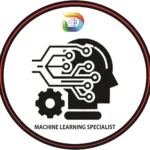
Diana Certified Machine Learning Specialist
Overview
The Diana Certified Machine Learning Specialist course is an intensive program designed to equip participants with the knowledge and skills needed to excel in the field of machine learning. Throughout this comprehensive course, students will delve into the fundamentals of machine learning algorithms, data preprocessing, model evaluation, and deployment strategies. With a strong emphasis on hands-on practical experience, learners will work on real-world projects, honing their ability to develop and deploy machine learning models effectively. This course covers a wide range of topics, including deep learning, natural language processing, and computer vision, ensuring participants are well-rounded specialists in the realm of machine learning upon completion.
Who is the Course For
This course is ideally suited for aspiring data scientists, software engineers, researchers, and professionals seeking to transition into the machine learning domain. It caters to individuals with varying levels of experience, from beginners looking to build a strong foundation in machine learning to intermediate practitioners aiming to enhance their skills and tackle more complex projects.
Tools We Use
In this course, participants will gain proficiency in a variety of essential tools and technologies, including popular programming languages like Python and libraries such as TensorFlow and scikit-learn. Students will also leverage Jupyter notebooks for interactive coding and version control systems like Git for collaborative project management. Additionally, cloud platforms like AWS and Azure will be utilized for model deployment and scalability.
What You Will Learn
Throughout this course, participants will acquire a deep understanding of core machine learning concepts, algorithms, and techniques. They will learn to preprocess and analyze data, build predictive and classification models, and evaluate model performance effectively. Furthermore, students will delve into advanced topics such as deep learning, reinforcement learning, and computer vision, gaining the skills needed to tackle cutting-edge projects in these domains. By the end of the course, participants will be proficient in deploying machine learning models, ensuring their practical relevance in real-world applications.
Prerequisites for the Course
To excel in this course, participants are expected to have a basic understanding of programming, preferably in Python, as well as a fundamental knowledge of mathematics and statistics, including concepts like linear algebra and probability. While prior experience in machine learning is not mandatory, a passion for data-driven problem-solving and a willingness to engage in hands-on coding and project work are essential prerequisites for success in this program.
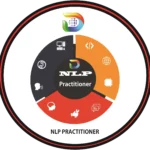
Diana Certified NLP Practitioner
Overview
Welcome to the Diana Certified NLP Practitioner course, your gateway to mastering the art and science of Neuro-Linguistic Programming (NLP). In this comprehensive program, you will delve into the transformative world of NLP, equipping yourself with powerful techniques and strategies to enhance communication, personal growth, and professional development. Our course covers foundational NLP principles, practical applications in diverse fields, and hands-on exercises to help you become a certified NLP practitioner. Whether you’re a coach, therapist, educator, or simply eager to unlock the potential of human behavior and communication, this course offers a deep dive into NLP, empowering you to create positive change in both your own life and the lives of others.
Who is the Course For
This course is designed to cater to a wide range of individuals seeking to harness the power of Neuro-Linguistic Programming (NLP). It is ideal for aspiring NLP practitioners, coaches, therapists, educators, leaders, and anyone passionate about personal development and effective communication. Whether you’re new to NLP or looking to deepen your understanding and skills, this course welcomes learners from diverse backgrounds and experience levels. Join us on this transformative journey to become a certified NLP practitioner and make a positive impact on individuals and organizations alike.
Tools We Use
In the Diana Certified NLP Practitioner course, we utilize a set of practical tools and resources to facilitate your learning and application of NLP principles. These tools include NLP frameworks, guided exercises, case studies, and interactive communication techniques. Additionally, we recommend familiarizing yourself with note-taking tools and resources for self-reflection to maximize your learning experience.
What You Will Learn
Throughout this course, you will acquire a deep understanding of NLP concepts and practical skills, including rapport-building, effective communication, goal setting, and pattern recognition. You will learn how to apply NLP techniques to various contexts, such as personal development, coaching, therapy, and leadership. By the end of the course, you will be a certified NLP practitioner, equipped with the knowledge and tools to create positive transformations in yourself and others.
Prerequisites for the Course
To enroll in the Diana Certified NLP Practitioner course, all you need is a genuine interest in personal development, effective communication, and the desire to learn and apply NLP techniques. There are no specific prerequisites in terms of prior education or experience; this course is open to individuals of all backgrounds and expertise levels. Your curiosity and enthusiasm for exploring the realms of NLP are the most valuable prerequisites. Join us today and embark on your journey towards becoming a certified NLP practitioner.
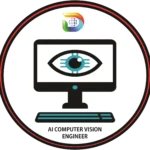
Diana Certified AI Computer Vision Engineer
Overview
The “Diana Certified AI Computer Vision Engineer” course is an immersive and comprehensive program designed to equip aspiring professionals and AI enthusiasts with the knowledge and skills necessary to excel in the field of computer vision. This course delves deep into the world of artificial intelligence, image processing, and machine learning, providing a solid foundation in computer vision techniques, algorithms, and applications. Throughout the program, students will gain hands-on experience with cutting-edge tools and technologies, enabling them to develop AI-driven computer vision solutions for a wide range of real-world problems.
Who is the Course For
This course is ideal for individuals with a passion for artificial intelligence and computer vision, including computer science graduates, software engineers, data scientists, researchers, and anyone looking to enter or advance their career in the field. Whether you’re a seasoned professional seeking to specialize in computer vision or a newcomer eager to explore the exciting realm of AI, this course provides a structured learning path to suit your needs.
Tools We Use
Participants in the “Diana Certified AI Computer Vision Engineer” course will have the opportunity to work with an array of industry-standard tools and libraries, including but not limited to Python, OpenCV, TensorFlow, PyTorch, and various deep learning frameworks. These tools will be integrated into practical assignments and projects, allowing students to build hands-on expertise and stay at the forefront of AI and computer vision technology.
What You Will Learn
Throughout this course, you will embark on a journey to master computer vision fundamentals, image processing techniques, and advanced AI algorithms. Topics covered include image classification, object detection, image segmentation, facial recognition, and more. You will learn to design and implement computer vision models, analyze image data, and optimize algorithms for real-time applications. By the end of the course, you will possess the skills to develop AI-powered computer vision solutions that can revolutionize industries ranging from healthcare and automotive to security and entertainment.
Prerequisites for the Course
To fully engage with the material and succeed in this course, participants should have a solid understanding of programming fundamentals, preferably in Python. Additionally, a background in mathematics, particularly linear algebra and calculus, will be beneficial. While prior knowledge of machine learning concepts is advantageous, it is not mandatory, as the course covers foundational AI topics. A curious mind, a willingness to learn, and a passion for pushing the boundaries of computer vision are the most crucial prerequisites for this course.
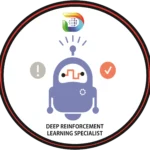
Diana Certified Deep Reinforcement Learning Specialist
Overview
The Diana Certified Deep Reinforcement Learning Specialist course is an immersive and advanced program dedicated to cultivating expertise in the cutting-edge field of deep reinforcement learning. Over the course’s duration, participants will dive deep into the intricate workings of reinforcement learning algorithms, exploring their application in solving complex decision-making tasks, robotics, game playing, and autonomous systems. With a strong focus on practical implementation, students will develop hands-on proficiency in creating and fine-tuning deep reinforcement learning agents, leveraging state-of-the-art libraries and techniques. By the end of this comprehensive course, learners will be equipped with the knowledge and skills to excel in developing AI systems that can learn to make optimal decisions in dynamic environments.
Who is the Course For
This course is tailored for professionals, researchers, and AI enthusiasts who are already well-versed in machine learning and want to specialize in deep reinforcement learning. It’s ideal for individuals seeking to advance their career in areas such as autonomous robotics, self-driving cars, game AI development, and decision-making systems. Participants should have a strong foundation in machine learning concepts and a solid grasp of programming in Python.
Tools We Use
In this course, participants will gain proficiency in various tools and frameworks critical for deep reinforcement learning, including TensorFlow, PyTorch, and OpenAI Gym. Students will also work with simulation environments and libraries like Unity ML-Agents to develop and train reinforcement learning agents effectively. Git for version control and Jupyter notebooks for interactive coding will be employed to facilitate collaboration and project management.
What You Will Learn
Throughout this course, participants will delve into the core principles of reinforcement learning, covering topics such as Markov decision processes, Q-learning, policy gradients, and actor-critic methods. They will master the art of designing and training deep reinforcement learning agents to solve complex tasks and environments, including video games, robotic control, and autonomous decision-making scenarios. Advanced topics like continuous action spaces, deep neural networks, and imitation learning will be explored, enabling participants to tackle real-world reinforcement learning challenges and create intelligent, adaptive systems.
Prerequisites for the Course
To excel in this course, participants should have a strong foundation in machine learning concepts, including supervised and unsupervised learning. Proficiency in Python programming is essential. Prior experience with deep learning frameworks like TensorFlow or PyTorch is highly recommended. Familiarity with reinforcement learning basics, such as Markov decision processes and value functions, will be advantageous but not mandatory. A strong mathematical background, encompassing concepts like calculus and linear algebra, is essential for understanding the theoretical aspects of deep reinforcement learning. Students should also possess a passion for solving complex problems and a willingness to engage in hands-on coding, experimentation, and project work.
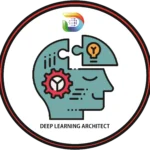
Diana Certified Deep Learning Architect
Overview
The Diana Certified Deep Learning Architect course is an intensive and advanced program meticulously crafted to nurture expertise in the intricate domain of deep learning architecture design. Throughout this comprehensive course, participants will explore the latest advancements in deep neural networks, convolutional and recurrent neural networks, generative adversarial networks, and more. With a strong emphasis on hands-on experience, students will engage in real-world projects and case studies, mastering the art of creating and optimizing complex deep learning models. By the end of this program, participants will be equipped with the knowledge and skills needed to architect and deploy state-of-the-art deep learning systems that excel in tasks ranging from image recognition and natural language processing to autonomous systems.
Who is the Course For
This course is tailored for experienced data scientists, machine learning engineers, researchers, and professionals aiming to become deep learning architects. It is ideal for individuals seeking to advance their careers in fields such as computer vision, speech recognition, and natural language understanding. Participants should already possess a strong foundation in machine learning and deep learning concepts and have proficiency in Python programming. This program is designed for those who are passionate about pushing the boundaries of AI and deep learning.
Tools We Use
In this course, participants will gain proficiency in a range of essential tools and frameworks vital for deep learning architecture design, including TensorFlow, PyTorch, and Keras. Students will also work with popular cloud platforms like AWS and Google Cloud for scalable model training and deployment. Version control using Git, collaborative coding in Jupyter notebooks, and the utilization of GPU resources for accelerating deep learning experiments will be integral to the course.
What You Will Learn
Throughout this course, participants will delve into advanced topics in deep learning, including model architecture design, transfer learning, hyperparameter tuning, and network optimization. They will acquire a deep understanding of convolutional neural networks (CNNs) for computer vision, recurrent neural networks (RNNs) for sequential data, and generative adversarial networks (GANs) for creating synthetic data. Participants will gain hands-on experience in fine-tuning pre-trained models, designing custom architectures for specific tasks, and deploying deep learning systems at scale. By the course’s conclusion, students will be adept at solving complex problems with deep learning and architecting state-of-the-art AI solutions.
Prerequisites for the Course
To excel in this course, participants are expected to have a strong foundation in machine learning and deep learning, including concepts like neural networks, gradient descent, and backpropagation. Proficiency in Python programming is essential, as the course involves extensive coding and model development. Prior experience with deep learning frameworks like TensorFlow or PyTorch is highly recommended. A solid understanding of linear algebra, calculus, and probability is essential for comprehending the mathematical underpinnings of deep learning architectures. Additionally, participants should have experience with data preprocessing, model evaluation, and basic knowledge of cloud computing platforms. A passion for tackling complex AI challenges and a commitment to hands-on project work are crucial prerequisites for success in this program.

Diana Certified AI Ethics Consultant
Overview
The Diana Certified AI Ethics Consultant course is a specialized program dedicated to equipping participants with the knowledge and expertise required to navigate the complex ethical considerations arising from the proliferation of artificial intelligence (AI) technologies. Throughout this comprehensive course, students will explore the ethical dimensions of AI, covering topics such as bias and fairness, transparency, accountability, and privacy. With a strong focus on practical ethics, learners will gain the skills to assess and mitigate ethical risks in AI systems, develop ethical AI guidelines, and engage in meaningful conversations with stakeholders to promote responsible AI adoption. By the end of this program, participants will be prepared to guide organizations and institutions in making ethically sound decisions regarding AI technologies and ensure AI aligns with societal values and norms.
Who is the Course For
This course is intended for professionals, policymakers, researchers, ethicists, and individuals passionate about AI ethics who are seeking to become AI ethics consultants or advisors. It is particularly relevant for those in roles related to AI governance, compliance, and ethics in industries such as technology, healthcare, finance, and government. Participants should have a background in ethics, law, technology, or related fields and a strong interest in addressing ethical challenges in the AI domain.
Tools We Use
In this course, participants will become proficient in various tools and frameworks essential for AI ethics assessment and implementation. These include AI auditing and fairness assessment tools, transparency and interpretability libraries, privacy-preserving technologies, and AI ethics frameworks. Students will also engage in practical case studies and discussions, utilizing ethical decision-making frameworks and guidelines.
What You Will Learn
Throughout this course, participants will delve into the ethical principles underpinning AI, including fairness, transparency, accountability, and privacy, and learn how to apply these principles to real-world AI systems. They will explore techniques for identifying and mitigating bias in AI algorithms, ensuring transparency in AI decision-making processes, and establishing accountability mechanisms for AI outcomes. The course will also cover the legal and regulatory landscape of AI ethics and provide guidance on engaging with diverse stakeholders, including policymakers, industry leaders, and the public, to facilitate ethical AI adoption. By the end of the program, students will be well-prepared to serve as ethical consultants, auditors, or advisors in the AI field.
Prerequisites for the Course
To succeed in this course, participants should have a foundational understanding of ethics and a strong interest in the ethical implications of AI technologies. A background in law, technology, or related fields is beneficial but not mandatory. Familiarity with basic AI concepts and terminology is advantageous. Participants should possess critical thinking and analytical skills, as well as the ability to evaluate and assess ethical issues in complex technological systems. A willingness to engage in ethical discussions, collaborate with diverse stakeholders, and advocate for responsible AI practices is essential. Additionally, a commitment to upholding ethical values and principles in AI adoption is highly encouraged.
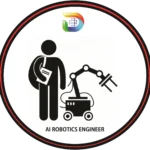
Diana Certified AI Robotics Engineer
Overview
The Diana Certified AI Robotics Engineer course is an advanced program designed to empower participants with the skills and knowledge necessary to excel in the dynamic field of AI robotics engineering. Throughout this comprehensive course, students will delve into the core principles of robotics, AI perception, control systems, and robotic hardware. With a strong emphasis on hands-on practical experience, learners will engage in real-world projects, enabling them to design, build, and program intelligent robotic systems capable of autonomous decision-making, perception, and interaction. By the end of this program, participants will be well-equipped to tackle the most complex challenges in AI robotics and contribute to the advancement of automation and robotics technologies.
Who is the Course For
This course is tailored for individuals aspiring to become AI robotics engineers, researchers, and professionals looking to specialize in the field of robotics and artificial intelligence. It is ideal for those seeking to advance their careers in industries such as industrial automation, autonomous vehicles, healthcare robotics, and smart manufacturing. Participants should have a solid foundation in computer science and programming, as well as a keen interest in robotics and AI technologies.
Tools We Use
In this course, participants will gain proficiency in a range of essential tools and technologies necessary for AI robotics engineering. These include popular programming languages such as Python and C++, robotics middleware like ROS (Robot Operating System), simulation environments like Gazebo, and hardware platforms such as Arduino and Raspberry Pi. Students will also work with various sensors, actuators, and robotic kits to gain practical experience in building and controlling robotic systems.
What You Will Learn
Throughout this course, participants will explore topics such as robot kinematics, dynamics, and control algorithms, enabling them to understand and manipulate the physical behavior of robots. They will delve into AI perception techniques, including computer vision and sensor fusion, to equip robots with the ability to perceive and interact with their environment. Additionally, participants will learn about AI planning and decision-making algorithms for autonomous navigation and task execution. The course will also cover topics like human-robot interaction and ethical considerations in AI robotics. By the end of the program, students will be proficient in designing, building, and programming AI-driven robotic systems for a wide range of applications.
Prerequisites for the Course
To succeed in this course, participants should have a strong foundation in computer science and programming, particularly in languages like Python and C++. Familiarity with basic concepts in linear algebra, calculus, and probability is essential for understanding robotics algorithms. Prior experience with robotics or AI is helpful but not required. Participants should be comfortable with hardware components, electronics, and basic circuitry. A passion for robotics and artificial intelligence, coupled with a desire to solve real-world problems in automation and robotics, is crucial. Additionally, students should be prepared to engage in hands-on project work and collaboration with peers.

Diana Certified AI Healthcare Specialist
Overview
The “Diana Certified AI Healthcare Specialist” course is a comprehensive and specialized program designed to equip healthcare professionals, data scientists, and aspiring experts with the knowledge and skills necessary to harness the transformative power of artificial intelligence (AI) in the healthcare industry. This cutting-edge course explores the convergence of healthcare and AI, covering topics such as medical image analysis, predictive diagnostics, patient care optimization, and ethical considerations, enabling participants to become proficient in leveraging AI to enhance patient outcomes, streamline processes, and drive innovation in the healthcare sector.
Who is the Course For
This course is tailored for healthcare practitioners, including doctors, nurses, radiologists, and healthcare administrators, as well as data scientists, researchers, and technologists interested in revolutionizing healthcare through AI. It is ideal for those looking to apply AI technologies to improve diagnostics, treatment planning, patient monitoring, and administrative tasks in healthcare settings. Whether you aim to advance your career within the healthcare industry or embark on a transformative journey at the intersection of AI and healthcare, this course offers a structured pathway to meet your goals.
Tools We Use
Participants in the “Diana Certified AI Healthcare Specialist” course will work with a suite of state-of-the-art tools and technologies commonly employed in healthcare AI applications. These may include Python, popular machine learning and deep learning frameworks such as TensorFlow and PyTorch, medical imaging software like DICOM, and electronic health record (EHR) systems. Hands-on experience with these tools will empower students to develop AI solutions for tasks such as medical image analysis, patient risk prediction, and clinical decision support, all while adhering to healthcare data privacy and security standards.
What You Will Learn
Throughout this course, you will gain a deep understanding of AI’s transformative potential in healthcare, covering topics such as medical image analysis, disease prediction, drug discovery, and patient care optimization. You will acquire the skills to design and implement AI-driven healthcare solutions, including developing predictive models, automating routine tasks, and ensuring compliance with healthcare regulations and ethical guidelines. By the end of the course, you will be proficient in applying AI techniques to improve healthcare outcomes, reduce costs, and enhance patient experiences.
Prerequisites for the Course
To maximize your success in this course, a background in healthcare, life sciences, or related fields is beneficial but not mandatory. Participants should have a basic understanding of data analysis and programming, preferably in Python. While prior knowledge of machine learning and AI concepts is advantageous, it is not required, as the course covers foundational AI topics specific to healthcare. Above all, a passion for advancing healthcare through innovative AI applications and a commitment to ethical considerations in healthcare AI are essential prerequisites for this course.

Diana Certified AI Business Strategist
Overview
The Diana Certified AI Business Strategist course is a specialized program designed to equip participants with the knowledge and skills needed to harness the transformative power of artificial intelligence (AI) within the context of business strategy. Throughout this comprehensive course, students will explore AI technologies, their applications, and their strategic implications for organizations. With a strong focus on practical insights and case studies, learners will gain the ability to identify AI opportunities, formulate AI-driven business strategies, and lead AI implementation initiatives. By the end of this program, participants will be well-prepared to guide organizations in leveraging AI for competitive advantage, growth, and innovation.
Who is the Course For
This course is tailored for business professionals, managers, entrepreneurs, and decision-makers across industries who aim to leverage AI as a strategic asset for their organizations. It is ideal for those seeking to understand how AI can drive business growth, improve decision-making processes, and enhance customer experiences. Participants should have a background in business management, strategy, or related fields and a keen interest in the strategic implications of AI technologies.
Tools We Use
In this course, participants will gain a deep understanding of various AI technologies, including machine learning, natural language processing, and computer vision. While the course does not require specific technical tools, participants will become familiar with AI development and deployment tools and platforms, AI strategy frameworks, and AI implementation best practices. Students will also explore AI-driven business intelligence tools and analytics platforms for data-driven decision-making.
What You Will Learn
Throughout this course, participants will delve into the strategic aspects of AI, covering topics such as AI landscape analysis, AI adoption frameworks, and the development of AI-driven business models. They will learn how to identify AI opportunities within their organizations, assess the feasibility of AI projects, and develop AI strategies aligned with business goals. The course will also explore ethical and regulatory considerations related to AI and provide insights into risk management and governance in AI initiatives. By the end of the program, participants will be equipped to create and execute AI strategies that drive business success.
Prerequisites for the Course
To excel in this course, participants are expected to have a foundational understanding of business management and strategy. While technical expertise in AI is not required, a basic familiarity with AI concepts and terminology is beneficial. Participants should have experience working in business or related roles and possess strong analytical and problem-solving skills. An open mindset for learning and a willingness to explore the strategic implications of AI in a business context are essential. Additionally, a commitment to applying course learnings to real-world business scenarios and driving AI initiatives within organizations is highly encouraged.
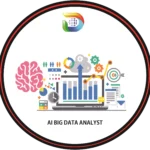
Diana Certified AI Big Data Analyst
Overview
The Diana Certified AI Computer Vision Engineer course is a specialized and comprehensive program designed to empower participants with the skills and expertise required to excel in the exciting field of computer vision. Throughout this course, students will delve into the core principles of computer vision, exploring topics such as image classification, object detection, image segmentation, and facial recognition. With a strong emphasis on hands-on practical experience, learners will work on real-world computer vision projects, mastering the art of designing and deploying AI-driven vision systems. By the end of this program, participants will be equipped to develop advanced computer vision applications, from self-driving cars and medical image analysis to facial recognition systems and augmented reality.
Who is the Course For
The Diana Certified AI Big Data Analyst course is ideally suited for individuals who want to pursue a career in big data analytics and are interested in leveraging artificial intelligence to derive valuable insights from large datasets. This course is suitable for:
Data Analysts: Data professionals looking to enhance their skills in handling and analyzing big data to uncover actionable insights.
Business Analysts: Professionals seeking to make data-driven decisions and provide valuable insights to improve business strategies and outcomes.
Aspiring Data Scientists: Individuals on a path to becoming data scientists who want to build a strong foundation in big data analytics.
IT Professionals: IT specialists interested in transitioning into data analytics roles within organizations dealing with large datasets.
Managers and Decision-Makers: Business leaders who want to understand the potential of big data and AI to drive informed decisions and gain a competitive edge.
Researchers: Those involved in academic or industry research who need to analyze and extract insights from large datasets.
Anyone Interested in Data Analytics: Enthusiasts who are passionate about data analytics and want to develop expertise in big data analysis and AI-driven insights.
This course is designed to accommodate a wide range of backgrounds and skill levels, making it accessible to both beginners and professionals looking to enhance their big data analytics capabilities and embrace AI in their data-driven journey.
Tools We Use
In the Diana Certified AI Big Data Analyst course, participants will become proficient in a variety of essential tools and technologies for big data analytics, including Hadoop, Spark, Python, SQL, and data visualization libraries like Matplotlib and Seaborn. They will also leverage machine learning frameworks such as scikit-learn and TensorFlow for predictive modeling and analysis. Additionally, participants will work with big data processing platforms like Apache Hive and Apache Pig to handle and query large datasets efficiently.
What You Will Learn
Throughout this course, participants will acquire a deep understanding of big data concepts, including data storage, processing, and analysis. They will explore data preprocessing techniques, feature engineering, and data cleaning to prepare large datasets for analysis. Students will delve into machine learning algorithms for classification, regression, clustering, and recommendation systems, gaining the skills to apply these algorithms to real-world big data challenges. The course will also cover data visualization methods and best practices for communicating insights effectively to stakeholders. By the end of the program, participants will be proficient in big data analytics and prepared to harness the power of AI in making data-driven decisions.
Prerequisites for the Course
To excel in the Diana Certified AI Big Data Analyst course, participants should have a solid foundation in programming, preferably in Python, and familiarity with data manipulation and analysis using libraries like Pandas. Basic knowledge of statistics and mathematics is beneficial, as these concepts will be integral to understanding and applying machine learning algorithms. No prior experience with big data technologies is required, but participants should be eager to learn and engage in hands-on projects involving large datasets. A passion for data-driven decision-making and problem-solving is essential, as participants will work on real-world big data analytics tasks throughout the course.
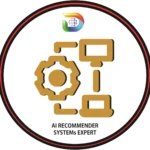
Diana Certified AI Recommender Systems Expert
Overview
The Diana Certified AI Recommender Systems Expert course is a specialized and comprehensive program designed to empower participants with the knowledge and skills required to excel in the dynamic field of recommender systems. Throughout this course, students will delve into the principles of recommender systems, exploring topics such as collaborative filtering, content-based filtering, matrix factorization, and deep learning-based recommendation algorithms. With a strong emphasis on hands-on practical experience, learners will work on real-world recommender system projects, mastering the art of designing, building, and optimizing AI-driven recommendation engines. By the end of this program, participants will be well-prepared to create highly effective and personalized recommender systems that drive user engagement and enhance the user experience in various domains.
Who is the Course For
This course is tailored for data scientists, machine learning engineers, software developers, and professionals seeking to specialize in the field of recommender systems. It is ideal for individuals looking to advance their careers in industries such as e-commerce, entertainment, content delivery, and online advertising, where recommendation engines play a pivotal role in enhancing user satisfaction and driving business growth. Participants should have a strong foundation in machine learning and a keen interest in understanding how recommender systems can be leveraged to provide personalized recommendations to users.
Tools We Use
In the Diana Certified AI Recommender Systems Expert course, participants will become proficient in a variety of essential tools and technologies crucial for building and evaluating recommender systems. These include popular machine learning frameworks like scikit-learn, TensorFlow, and PyTorch, as well as libraries for data preprocessing and analysis such as Pandas and NumPy. Participants will also work with recommendation-specific libraries and platforms for collaborative filtering and content-based recommendation. Access to cloud-based services for deploying and scaling recommender systems may be beneficial for hands-on projects.
What You Will Learn
Throughout this course, participants will gain a deep understanding of recommender system concepts, covering topics such as user-item interactions, recommendation algorithms, evaluation metrics, and cold-start problems. They will learn how to design and implement collaborative filtering algorithms, content-based filtering models, and hybrid recommendation systems that combine multiple recommendation techniques. The course will also explore advanced topics in recommender systems, including matrix factorization, deep learning-based recommendation, and reinforcement learning for personalized recommendations. By the end of the program, students will be proficient recommender system experts, capable of designing and optimizing recommendation engines that provide valuable, tailored suggestions to users.
Prerequisites for the Course
To excel in the Diana Certified AI Recommender Systems Expert course, participants should have a strong foundation in machine learning concepts, including supervised and unsupervised learning, as well as proficiency in programming, preferably in Python. Familiarity with data preprocessing and analysis libraries such as Pandas and NumPy is beneficial. Prior experience with machine learning frameworks like scikit-learn or deep learning frameworks like TensorFlow or PyTorch is recommended. A basic understanding of linear algebra, calculus, and probability is essential for comprehending the mathematical underpinnings of recommender system algorithms. Participants should also have experience with data manipulation, model evaluation, and the ability to work with real-world datasets. A passion for delivering personalized recommendations and enhancing user experiences is crucial for success in this program.
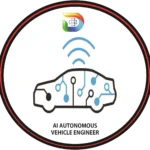
Diana Certified AI Autonomous Vehicle Engineer
Overview
The “Diana Certified AI Autonomous Vehicle Engineer” course is an advanced and specialized program designed to equip individuals with the knowledge and expertise required to develop cutting-edge autonomous vehicle technologies. This immersive course delves deep into the fields of artificial intelligence, robotics, computer vision, and control systems, enabling participants to design, build, and program autonomous vehicles that can navigate complex real-world environments safely and efficiently. Throughout the program, students will gain hands-on experience with industry-standard tools, simulations, and hardware, making them proficient in the rapidly evolving field of autonomous driving.
Who is the Course For
This course is tailored for engineers, researchers, software developers, and automotive enthusiasts who are passionate about the future of autonomous vehicles. It is ideal for individuals seeking to specialize in autonomous vehicle technology or advance their careers in fields related to self-driving cars, such as robotics, computer vision, and AI. Whether you’re a seasoned professional in the automotive industry or an aspiring engineer eager to contribute to the autonomous vehicle revolution, this course offers a comprehensive learning path to meet your technical and career objectives.
Tools We Use
Participants in the “Diana Certified AI Autonomous Vehicle Engineer” course will have access to a range of essential tools and technologies, including but not limited to ROS (Robot Operating System), Python, machine learning libraries, sensor simulations (LiDAR, cameras, radar), autonomous vehicle hardware platforms (e.g., NVIDIA Jetson), and software frameworks for perception, localization, and control. These tools will be integrated into hands-on projects and simulations, enabling students to gain practical experience in developing and testing autonomous driving algorithms.
What You Will Learn
Throughout this course, you will explore the core principles and advanced techniques required for autonomous vehicle development, covering areas such as sensor fusion, localization, path planning, control systems, and AI-driven decision-making. You will learn to build and deploy AI models for object detection, recognition, and tracking, enabling vehicles to perceive their surroundings accurately. Additionally, the curriculum focuses on implementing algorithms for vehicle localization, route planning, and vehicle control, fostering the ability to create end-to-end autonomous driving systems. By the end of the course, you will possess the skills to develop and optimize autonomous vehicle software and contribute to the advancement of self-driving technology.
Prerequisites for the Course
To excel in this course, participants should have a strong background in computer science, engineering, or a related field, with proficiency in programming languages such as Python and C++. Familiarity with machine learning and deep learning concepts is advantageous but not mandatory, as the course covers these topics in detail. A solid understanding of mathematics, particularly linear algebra and calculus, is essential for grasping the underlying principles of autonomous vehicle technology. Moreover, a passion for autonomous vehicles and a dedication to solving complex challenges in this field are crucial prerequisites. Whether you are a seasoned engineer or a motivated newcomer, a commitment to advancing the future of autonomous driving is paramount for success in this program.
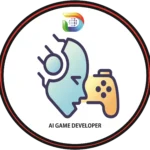
Diana Certified AI Game Developer
Overview
The “Diana Certified AI Game Developer” course is a dynamic and specialized program designed to equip individuals with the skills and knowledge required to infuse artificial intelligence (AI) into video game development. This immersive course combines the realms of gaming and AI, enabling participants to create immersive and intelligent gaming experiences. Throughout the program, students will explore AI-driven game mechanics, adaptive storytelling, character behavior, procedural content generation, and more, allowing them to craft innovative, engaging, and intellectually stimulating games.
Who is the Course For
This course is tailored for aspiring game developers, programmers, AI enthusiasts, and anyone passionate about the intersection of gaming and AI. It is ideal for those looking to enhance their game development skills with AI techniques or transition into the field of AI game development. Whether you aspire to work in the gaming industry or desire to create AI-powered games as an independent developer, this course offers a comprehensive learning path to fulfill your creative and technical ambitions.
Tools We Use
Participants in the “Diana Certified AI Game Developer” course will have the opportunity to work with a range of industry-standard game development tools and AI libraries, including game engines such as Unity or Unreal Engine, programming languages like C# or C++, and AI frameworks like TensorFlow or PyTorch. Additionally, specialized game development tools for AI behavior modeling, pathfinding, and game physics will be explored. These tools will be integrated into practical game development projects, allowing students to gain hands-on experience in building AI-driven games.
What You Will Learn
Throughout this course, you will delve into the fascinating world of AI game development, covering topics such as AI agents, decision trees, pathfinding algorithms, procedural content generation, and natural language processing for in-game dialogues. You will acquire the skills to create NPCs with intelligent behaviors, design adaptive game environments, and craft AI-driven narratives that respond dynamically to player actions. The curriculum also emphasizes optimizing game performance, integrating AI seamlessly into game mechanics, and addressing common challenges in AI game development, making you proficient in delivering captivating and interactive gaming experiences.
Prerequisites for the Course
While there are no strict prerequisites for this course, a fundamental understanding of programming concepts is beneficial, and experience with a programming language like Python, C#, or C++ is advantageous. Familiarity with game development fundamentals is also useful but not required, as the course covers AI techniques specific to gaming. Most importantly, a passion for both gaming and artificial intelligence, coupled with a creative mindset and a desire to bring innovative AI-powered games to life, are the key prerequisites for success in this program. Whether you’re a novice or an experienced developer, your enthusiasm for AI game development is what matters most.
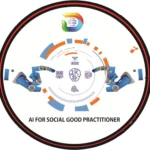
Diana Certified AI for Social Good Practitioner
Overview
The “Diana Certified AI for Social Good Practitioner” course is a transformative program aimed at empowering individuals with the knowledge and skills to leverage artificial intelligence (AI) for positive social impact. In a world grappling with complex societal challenges, this course focuses on harnessing AI’s potential to address issues such as poverty, healthcare disparities, environmental conservation, and more. Participants will gain expertise in applying AI technologies to create innovative solutions that can drive positive change and address pressing global issues, making a tangible impact on society.
Who is the Course For
This course is intended for a diverse audience, including AI enthusiasts, data scientists, social entrepreneurs, nonprofit professionals, policymakers, and anyone passionate about using AI to address social and environmental challenges. It is ideal for those looking to apply AI skills to create meaningful change, whether you’re a tech professional seeking to shift your career focus or a social advocate aiming to integrate AI into your initiatives. This course provides a structured pathway for individuals seeking to combine their technical expertise with a commitment to social good.
Tools We Use
The “Diana Certified AI for Social Good Practitioner” course utilizes a variety of tools and technologies to enable participants to develop and deploy AI solutions for social impact. Key tools may include Python, machine learning frameworks such as TensorFlow and PyTorch, data visualization tools, cloud computing platforms, and specialized software for data collection and analysis. Students will have access to resources that facilitate data-driven decision-making, collaboration with nonprofits and social enterprises, and the development of AI projects with meaningful social outcomes
What You Will Learn
Throughout this course, participants will gain a deep understanding of the intersection between AI and social good, covering topics such as data for social impact, ethical considerations, and project management for social AI initiatives. You will acquire the skills to identify relevant societal challenges, collect and analyze data, design AI-driven solutions, and communicate results effectively to stakeholders. The curriculum includes case studies and real-world examples of AI applications in areas such as healthcare, education, disaster response, and sustainability, allowing you to develop the expertise to create positive change in your chosen domain.
Prerequisites for the Course
While there are no strict prerequisites for this course, a basic understanding of programming concepts and familiarity with Python will be beneficial. Additionally, an interest in societal issues and a commitment to using AI for social good are essential prerequisites. This course is designed to be accessible to individuals from various backgrounds, including those with limited technical experience but a strong desire to make a meaningful impact on the world. Whether you have a technical or non-technical background, a passion for social good and a willingness to learn are the primary requirements for success in this program.
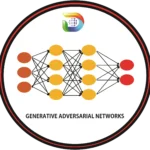
Diana Certified GANs Expert
Overview
The Diana Certified GANs Expert course is an advanced and specialized program dedicated to nurturing expertise in Generative Adversarial Networks (GANs), a cutting-edge technology in the field of artificial intelligence. Throughout this comprehensive course, students will explore the theory and practical applications of GANs, including image generation, style transfer, data augmentation, and more. With a strong emphasis on hands-on experience, learners will work on real-world GAN projects, mastering the art of designing, training, and optimizing GAN models. By the end of this program, participants will be well-prepared to develop and deploy GAN-based solutions for a wide range of creative and data-driven applications.
Who is the Course For
This course is ideal for experienced data scientists, machine learning engineers, computer vision specialists, and researchers who are looking to deepen their expertise in GANs and expand their skill set to include generative models. It is also suitable for professionals in creative industries, such as graphic designers, artists, and content creators, interested in using GANs to generate innovative and unique visual content. Participants should have a strong foundation in machine learning and deep learning concepts, including neural networks and backpropagation.
Tools We Use
In the Diana Certified GANs Expert course, participants will become proficient in a variety of essential tools and technologies for working with GANs, including deep learning frameworks like TensorFlow and PyTorch. They will utilize popular GAN architectures and libraries such as DCGAN, CycleGAN, and StyleGAN. Additionally, students will work with image processing and manipulation tools to create and refine GAN-generated content. GANs training often requires significant computational resources, so access to GPUs or cloud computing platforms may be beneficial for completing hands-on exercises and projects.
What You Will Learn
Throughout this course, participants will gain a deep understanding of GANs, covering topics such as the GAN architecture, training techniques, loss functions, and variations of GANs like conditional GANs and Wasserstein GANs. They will learn how to create realistic and high-quality synthetic data, generate images and artwork, and apply GANs for style transfer and image-to-image translation tasks. The course will also explore ethical considerations in GAN applications, such as deepfake generation, and provide guidance on responsible and creative uses of GAN technology. By the end of the program, students will be proficient GAN experts, capable of using GANs to innovate in various domains.
Prerequisites for the Course
To excel in the Diana Certified GANs Expert course, participants should have a strong foundation in machine learning and deep learning concepts, including neural networks, backpropagation, and gradient descent. Proficiency in Python programming is essential, as the course involves extensive coding and model development. Familiarity with deep learning frameworks like TensorFlow or PyTorch is highly recommended. A solid understanding of linear algebra, calculus, and probability is essential for comprehending the mathematical underpinnings of GANs. Participants should also have experience with data preprocessing and model evaluation. Additionally, a passion for creative applications of AI and a commitment to ethical considerations in GAN usage are crucial prerequisites for success in this program.

Diana Certified Explainable AI Practitioner
Overview
The “Diana Certified Explainable AI Practitioner” course is a specialized program designed to equip individuals with the expertise to navigate and implement explainable artificial intelligence (XAI) solutions effectively. In an era where AI systems are becoming increasingly complex, opaque, and integrated into our daily lives, this course focuses on the critical need for transparency and interpretability in AI models. Participants will gain in-depth knowledge of XAI techniques, enabling them to design, develop, and assess AI systems that provide understandable and trustable outputs, essential for applications ranging from finance to healthcare and beyond.
Who is the Course For
This course is tailored for AI practitioners, data scientists, machine learning engineers, ethicists, and professionals in industries where AI decision-making is pivotal. It is ideal for individuals seeking to enhance their AI models’ interpretability and transparency, ensuring ethical, regulatory, and stakeholder compliance. Whether you’re a data scientist looking to make your models more interpretable or a decision-maker in a sector adopting AI, this course offers the tools and knowledge needed to excel in the evolving landscape of XAI.
Tools We Use
The “Diana Certified Explainable AI Practitioner” course leverages various open-source libraries and frameworks to facilitate XAI model development and evaluation. Commonly used tools include Python, scikit-learn, LIME (Local Interpretable Model-agnostic Explanations), SHAP (SHapley Additive exPlanations), and interpretable machine learning libraries. Students will also gain exposure to specialized tools designed for visualizing and explaining complex machine learning models, enhancing their ability to apply XAI principles effectively.
What You Will Learn
Throughout this course, participants will delve into the foundations of explainable AI, covering topics such as model interpretability, feature importance, model-agnostic methods, and ethical considerations in AI. You will develop the skills to interpret black-box AI models, generate meaningful explanations for model decisions, and communicate AI insights effectively to both technical and non-technical stakeholders. Additionally, the course will explore XAI techniques such as surrogate models, counterfactual explanations, and rule-based approaches, providing a comprehensive understanding of how to make AI systems more transparent, trustworthy, and accountable.
Prerequisites for the Course
While there are no strict prerequisites for this course, participants should possess a basic understanding of machine learning concepts and be proficient in Python programming. Familiarity with common machine learning libraries, such as scikit-learn, is advantageous. Moreover, a curiosity for AI interpretability and a commitment to ethical AI practices are crucial prerequisites, as this course focuses on integrating transparency and accountability into AI models. Whether you have experience in AI development or are relatively new to the field, a passion for making AI more understandable and explainable is the key to success in this program.
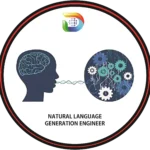
Diana Certified Natural Language Generation Engineer
Overview
The Diana Certified Natural Language Generation Engineer course is a specialized and intensive program designed to empower participants with the knowledge and skills needed to excel in the field of natural language generation (NLG). Throughout this comprehensive course, students will dive deep into NLG principles, exploring topics such as text generation models, language understanding, and NLG applications in chatbots, content generation, and data reporting. With a strong emphasis on hands-on practical experience, learners will work on real-world NLG projects, mastering the art of creating AI-driven systems that can generate human-like text from data. By the end of this program, participants will be well-prepared to leverage NLG for various applications, from automating content creation to enhancing user experiences.
Who is the Course For
This course is tailored for data scientists, machine learning engineers, natural language processing (NLP) specialists, content creators, and professionals looking to specialize in NLG. It is ideal for individuals seeking to advance their careers in industries such as marketing, journalism, customer service, and data analysis, where NLG technologies are increasingly important for automating text-based tasks and generating human-like content. Participants should have a foundational understanding of NLP concepts and a strong interest in harnessing NLG for text generation.
Tools We Use
In the Diana Certified Natural Language Generation Engineer course, participants will become proficient in a range of essential tools and technologies for NLG. These include natural language processing libraries and frameworks such as NLTK, spaCy, and Transformers (e.g., GPT-3). Students will also work with text generation platforms and NLG tools that enable the development of custom NLG solutions. Additionally, familiarity with programming languages such as Python for text preprocessing and data manipulation may be required for hands-on projects.
What You Will Learn
Throughout this course, participants will gain a deep understanding of NLG concepts and techniques, including text generation models like recurrent neural networks (RNNs) and transformer-based models. They will explore the process of creating NLG systems that can generate coherent and contextually relevant text from structured data or templates. The course will cover NLG applications in chatbots, content generation, data reporting, and more, with a focus on practical implementation. Participants will also learn about ethical considerations in NLG, including bias and fairness in text generation. By the end of the program, students will be proficient NLG engineers capable of designing and deploying NLG solutions for a wide range of text generation tasks.
Prerequisites for the Course
To excel in the Diana Certified Natural Language Generation Engineer course, participants should have a foundational understanding of natural language processing (NLP) concepts, including text preprocessing, tokenization, and basic language modeling. Proficiency in programming, particularly in Python, is essential, as the course involves coding and building NLG systems. Familiarity with machine learning and deep learning concepts is beneficial but not mandatory, as the course will provide instruction on NLG in the context of text generation. Participants should also have experience with NLP libraries and tools and be comfortable working with textual data. A passion for creative text generation and a commitment to ethical considerations in NLG are crucial prerequisites for success in this program.
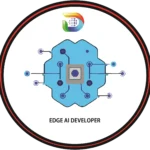
Diana Certified Edge AI Developer
Overview
The “Diana Certified Edge AI Developer” course is a specialized and hands-on program designed to equip individuals with the skills and expertise needed to develop cutting-edge Edge AI applications. In a world where data processing and decision-making increasingly happen at the edge of the network, this course explores the intersection of artificial intelligence (AI) and edge computing. Participants will gain in-depth knowledge of Edge AI principles, including model optimization, deployment on resource-constrained devices, and real-time inferencing. Through practical projects and real-world examples, students will become proficient in building AI applications that operate efficiently and autonomously at the edge of the network.
Who is the Course For
This course is ideal for software developers, engineers, IoT enthusiasts, and anyone passionate about harnessing the power of AI at the edge. It is tailored for individuals seeking to enhance their skills in Edge AI development or those interested in applying AI to edge devices, such as drones, IoT devices, robotics, and smart sensors. Whether you are a seasoned developer looking to specialize in Edge AI or a newcomer eager to explore the exciting field of edge computing, this course offers a structured learning path to align your expertise with the growing demands of the Edge AI industry.
Tools We Use
Participants in the “Diana Certified Edge AI Developer” course will have access to a range of essential tools and technologies used in Edge AI development. Commonly used tools include programming languages like Python and C++, machine learning frameworks like TensorFlow and PyTorch, and deployment platforms such as TensorFlow Lite, ONNX Runtime, and NVIDIA Jetson for accelerated inferencing. Additionally, the course introduces edge hardware platforms and edge-friendly development environments to enable students to develop and test Edge AI applications effectively.
What You Will Learn
Throughout this course, you will delve into the core principles of Edge AI, covering topics such as model quantization, pruning, and compression for resource-constrained devices, as well as real-time inferencing, optimization for low latency, and power-efficient AI computing. You will acquire the skills to develop and deploy AI models on edge devices, enabling them to make intelligent decisions locally without relying on cloud-based processing. The curriculum also includes hands-on projects focused on real-world Edge AI applications, such as object detection on edge cameras, voice recognition on IoT devices, and autonomous navigation for drones. By the end of the course, you will possess the expertise to build and deploy efficient and responsive Edge AI solutions.
Prerequisites for the Course
To excel in this course, participants should have a strong foundation in programming and be proficient in at least one programming language, preferably Python or C++. Familiarity with machine learning and deep learning concepts is advantageous but not mandatory, as the course covers these topics in depth. Additionally, a basic understanding of hardware and embedded systems is beneficial but not required. Most importantly, a passion for Edge AI, a curiosity for optimizing AI for resource-constrained devices, and a dedication to exploring the potential of edge computing are the key prerequisites for success in this program. Whether you have a technical background or are relatively new to the field, your enthusiasm for Edge AI development is what matters most.
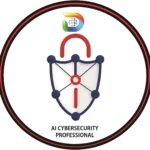
Diana Certified AI Cybersecurity Professional
Overview
The Diana Certified AI Cybersecurity Professional course is an advanced and specialized program meticulously crafted to equip participants with the knowledge and skills essential to excel in the dynamic field of AI-driven cybersecurity. Throughout this comprehensive course, students will explore the intersection of artificial intelligence and cybersecurity, diving into topics such as threat detection, intrusion detection, anomaly detection, and malware analysis. With a strong emphasis on hands-on practical experience, learners will work on real-world cybersecurity projects, mastering the art of leveraging AI to protect critical systems and networks. By the end of this program, participants will be well-prepared to become cybersecurity experts capable of using AI to proactively defend against emerging threats and secure digital environments effectively.
Who is the Course For
This course is designed for cybersecurity professionals, IT specialists, network administrators, and individuals aspiring to specialize in the field of AI-driven cybersecurity. It is ideal for those seeking to advance their careers in industries such as information security, risk management, and compliance, where the integration of AI technologies is becoming increasingly critical. Participants should have a strong foundation in cybersecurity concepts and practices and a keen interest in harnessing AI to enhance security measures and protect against cyber threats.
Tools We Use
In the Diana Certified AI Cybersecurity Professional course, participants will become proficient in a range of essential tools and technologies vital for AI-enhanced cybersecurity. These include cybersecurity and network monitoring tools, such as Wireshark and Snort, as well as AI-driven cybersecurity platforms and solutions. Students will also work with machine learning libraries and frameworks for building custom threat detection and anomaly detection models. Additionally, familiarity with security information and event management (SIEM) systems and cloud security platforms may be beneficial for hands-on projects and exercises.
What Will You Learn
Throughout this course, participants will gain a deep understanding of cybersecurity principles and the role of AI in enhancing threat detection and response. They will explore topics such as network traffic analysis, behavior-based anomaly detection, and machine learning-driven threat intelligence. The course will cover the application of AI algorithms for identifying and mitigating security vulnerabilities, as well as leveraging AI for real-time threat detection and incident response. Participants will also learn about ethical hacking and penetration testing, with a focus on utilizing AI to identify vulnerabilities and assess security postures. By the end of the program, students will be proficient AI cybersecurity professionals capable of defending against cyber threats with the power of AI.
Prerequisites for the Course
To excel in the Diana Certified AI Cybersecurity Professional course, participants should have a foundational understanding of cybersecurity concepts, including network security, encryption, and security protocols. Proficiency in programming and scripting languages, particularly Python, is essential, as the course involves coding and building AI-driven security solutions. Familiarity with basic machine learning concepts is beneficial but not mandatory, as the course will provide instruction on AI in the context of cybersecurity. Participants should also have experience with cybersecurity tools and technologies and be comfortable with network protocols and architecture. A passion for cybersecurity and a commitment to staying updated on the latest cyber threats and defense strategies are crucial prerequisites for success in this program.
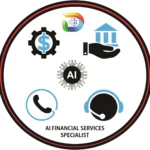
Diana Certified AI Financial Services Specialist
Overview
The “Diana Certified AI Financial Services Specialist” course is a specialized and comprehensive program designed to equip finance professionals, data scientists, and individuals interested in the financial industry with the knowledge and skills to leverage artificial intelligence (AI) for transformative applications in finance. This course explores the convergence of AI, machine learning, and finance, covering topics such as algorithmic trading, risk management, fraud detection, credit scoring, and financial forecasting. Through practical applications and real-world scenarios, participants will gain expertise in using AI to enhance decision-making, optimize financial strategies, and navigate the evolving landscape of AI-powered financial services.
Who is the Course For
This course is tailored for financial analysts, investment professionals, data analysts, fintech enthusiasts, and individuals seeking to enhance their careers in the financial services sector by harnessing AI technologies. It is ideal for those looking to leverage AI to improve financial decision-making, develop trading algorithms, manage risk, and innovate within traditional financial institutions or fintech startups. Whether you are a finance professional looking to add AI skills to your toolkit or a data scientist interested in financial applications, this course provides a structured learning path to align your expertise with the evolving demands of the finance industry.
Tools We Use
Participants in the “Diana Certified AI Financial Services Specialist” course will have access to a range of industry-standard tools and technologies used in financial AI applications. Commonly used tools include programming languages like Python and R, machine learning frameworks such as TensorFlow and scikit-learn, and data analysis libraries. Moreover, financial data sources and APIs will be introduced to enable students to gather and analyze real financial data. The course also explores specialized software and platforms designed for algorithmic trading, risk assessment, and financial modeling.
What You Will Learn
Throughout this course, you will delve into the intricate relationship between AI and finance, covering topics such as predictive modeling for stock prices, credit risk assessment, fraud detection, portfolio optimization, and algorithmic trading strategies. You will gain the skills to design and implement AI-driven financial models, analyze financial data for insights, and make informed investment decisions. The curriculum emphasizes understanding and addressing the unique challenges and ethical considerations in applying AI to financial services. By the end of the course, you will be proficient in leveraging AI to enhance financial decision-making processes and stay at the forefront of innovation in the financial sector.
Prerequisites for the Course
To succeed in this course, participants should have a strong foundation in finance, economics, or related fields and possess basic programming skills, preferably in Python or R. Familiarity with machine learning and data analysis concepts is advantageous but not required, as the course covers these topics in detail. Additionally, a solid understanding of mathematics, particularly statistics and probability, is essential for comprehending financial modeling and risk assessment techniques. Above all, a keen interest in the intersection of AI and finance, coupled with a commitment to ethical considerations in financial AI applications, are crucial prerequisites. Whether you have a finance background or come from a technical field, your passion for financial AI innovation is the key to success in this program.
Introduction to the world’s most renowned AI & Machine Learning Program brought to you by DIANA Advanced Tech Academy. With a solid reputation for excellence and trust, we offer you the opportunity to build a thriving career in the field of Advanced AI & Machine Learning.
AI Programming: Cognitive Skills
Learning: This aspect centers around acquiring data and establishing rules to transform it into actionable information. These rules, known as algorithms, provide computing devices with step-by-step instructions for accomplishing specific tasks.
Creativity: This aspect employs neural networks, rules-based systems, statistical methods, and other AI techniques to generate novel images, text, music, and ideas.
Self-correction: This aspect is designed to continually refine algorithms and ensure they yield the most accurate results possible.
Reasoning: This aspect emphasizes selecting the appropriate algorithm to achieve a desired outcome.
Differences between AI, Machine Learning, and Deep Learning
In enterprise IT, AI, machine learning, and deep learning are commonly used terms that are occasionally interchanged, particularly in marketing materials. However, there are distinctions among them. The term AI, coined in the 1950s, refers to the simulation of human intelligence by machines and encompasses a continually evolving set of capabilities as new technologies emerge. Machine learning enables software applications to improve accuracy in predicting outcomes without explicit programming for each case. By utilizing historical data as input, machine learning algorithms can forecast new output values. Deep learning, a subset of machine learning, is based on our understanding of the brain’s structure. Its utilization of artificial neural network structures has facilitated notable advancements in AI, including self-driving cars etc.
Why is Artificial Intelligence (AI) important ?
Artificial Intelligence (AI) holds significant importance due to its potential to revolutionize various aspects of our lives. It has proven to be invaluable in automating tasks traditionally performed by humans, including customer service, lead generation, fraud detection, and quality control. In many cases, AI outperforms humans, especially in repetitive and detail-oriented tasks.
Artificial Intelligence (AI) holds significant importance due to its potential to revolutionize various aspects of our lives. It has proven to be invaluable in automating tasks traditionally performed by humans, including customer service, lead generation, fraud detection, and quality control. In many cases, AI outperforms humans, especially in repetitive and detail-oriented tasks. For instance, AI tools can swiftly and accurately analyze large volumes of legal documents to ensure the proper completion of relevant fields. Furthermore, AI’s ability to process vast datasets provides enterprises with valuable insights into their operations that may have otherwise gone unnoticed. The rapidly expanding realm of generative AI tools also plays a crucial role in fields such as education, marketing, and product design.
The advancements in AI techniques have not only increased efficiency but have also opened up new business opportunities for large enterprises. Previously unimaginable applications, like connecting riders with taxis, have become a reality, as demonstrated by the success of companies like Uber.
AI has become central to many of today’s leading and most successful companies, including Alphabet, Apple, Microsoft, and Meta. These companies leverage AI technologies to enhance operations and gain a competitive edge. For instance, at Alphabet subsidiary Google, AI is integral to its search engine, self-driving cars developed by Waymo, and Google Brain, the inventor of the transformer neural network architecture, which has driven breakthroughs in natural language processing.
What are the advantages and disadvantages of Artificial Intelligence?
Advantages of AI:
Proficiency in detail-oriented tasks
AI has demonstrated its ability to diagnose certain types of cancer, such as breast cancer and melanoma, as effectively as or even better than doctors.
Accelerated data analysis
In data-intensive industries like banking, securities, pharmaceuticals, and insurance, AI significantly reduces the time required to analyze large datasets. It is employed in processes such as loan application processing and fraud detection.
Labor and productivity savings
The integration of AI and machine learning in warehouse automation has led to increased productivity, reducing reliance on manual labor.
Availability of AI-powered virtual agents
AI programs operate 24/7, eliminating the need for breaks or rest, ensuring uninterrupted service.
Consistent results
High-quality AI translation tools provide consistent translations, enabling businesses, regardless of their size, to communicate with customers in their native languages.
Personalization for improved customer satisfaction
AI enables personalized content, messaging, ads, recommendations, and website experiences tailored to individual customers.
Disadvantages of AI
Expensive
Processing the vast amounts of data required for AI programming can be costly.
Technical expertise requirement:
Developing AI tools demands deep technical knowledge and expertise.
Limited supply of qualified professionals
The scarcity of skilled individuals proficient in building AI tools poses a challenge in meeting the demand.
Reflects biases of training data
AI systems trained on biased datasets can inadvertently perpetuate biases at scale, leading to discriminatory outcomes.
Lack of task generalization
AI systems often struggle to generalize knowledge from one task to another, requiring specific training for each task.
Job displacement and unemployment
The automation brought by AI can result in the elimination of human jobs, leading to increased unemployment rates.
Strong AI vs. Weak AI
AI can be categorized as weak AI (narrow AI) or strong AI (artificial general intelligence, AGI).

Weak AI
Designed and trained to perform specific tasks, weak AI is utilized in applications such as industrial robots and virtual personal assistants like Apple’s Siri.

Strong AI
Strong AI aims to replicate the cognitive abilities of the human brain and possesses the capacity to apply knowledge from one domain to another when faced with unfamiliar tasks. It has the potential to autonomously find solutions. Strong AI is characterized by 4 Types.
What are the Four Types of Artificial Intelligence?
Artificial Intelligence (AI) can be classified into four distinct types, as outlined by Arend Hintze, an assistant professor of integrative biology and computer science and engineering at Michigan State University. These categories range from current task-specific intelligent systems to hypothetical sentient systems that are yet to be realized. The four types are as follows.

1. Reactive Machines
Reactive machines are AI systems that operate solely based on the present task at hand and lack memory of past experiences. An example is Deep Blue, the IBM chess program that famously defeated Garry Kasparov in the 1990s. Deep Blue could identify chessboard pieces and make predictions, but it couldn’t draw on previous encounters to inform future moves.

4. Self-Awareness
AI systems categorized under self-awareness have a sense of self, granting them consciousness. Machines with self-awareness possess an understanding of their own current state and existence. It is important to note that this level of AI does not currently exist and remains purely theoretical.

3. Theory of Mind
Theory of mind is a term borrowed from psychology. When applied to AI, it refers to systems that possess social intelligence and can comprehend emotions. This type of AI would be capable of inferring human intentions and predicting behavior, making them valuable members of human teams.

2. Limited Memory
AI systems falling under the limited memory category possess the ability to retain past experiences and use that information to make decisions in the future. Some decision-making functions in self-driving cars are designed with limited memory capabilities.
Artificial Intelligence (AI) can be classified into four distinct types, as outlined by Arend Hintze, an assistant professor of integrative biology and computer science and engineering at Michigan State University. These categories range from current task-specific intelligent systems to hypothetical sentient systems that are yet to be realized. The four types are as follows.
Examples of AI Technology and Its Applications Today
AI technology is integrated into various types of technology, leading to a wide range of applications. Here are seven examples

Automation
Automation
AI-powered automation tools can expand the capabilities of tasks performed. Robotic Process Automation (RPA) is an example of software that automates repetitive, rule-based data processing tasks traditionally done by humans. When combined with machine learning and emerging AI tools, RPA can automate more complex enterprise tasks, allowing intelligent bots to utilize AI insights and adapt to process changes.
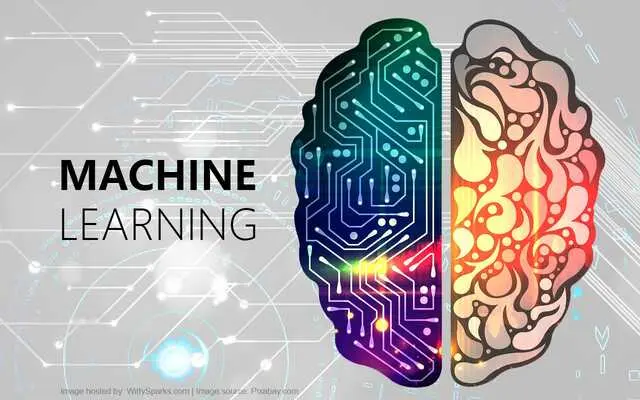
Machine Learning
Machine Learning
Machine learning enables computers to act without explicit programming. Deep learning, a subset of machine learning, automates predictive analytics. It encompasses three types of machine learning

Algorithms
Algorithms
Supervised learning: Labeled data sets are used to detect patterns and label new data sets.
Unsupervised learning: Data sets without labels are sorted based on similarities or differences.
Reinforcement learning: Data sets without labels provide feedback to the AI system after performing actions.

Machine Vision
Machine Vision
Machine vision empowers machines with the ability to see and process visual information. It involves capturing and analyzing visual data using cameras, analog-to-digital conversion, and digital signal processing. Machine vision finds applications in diverse areas such as signature identification and medical image analysis. It can surpass human eyesight by being programmable to see through obstacles like walls. It is important to note that machine vision should not be confused with computer vision, which focuses on machine-based image processing.

Natural Language Processing (NLP)
Natural Language Processing (NLP)
NLP involves the processing of human language by computer programs. It leverages machine learning techniques for tasks like spam detection, text translation, sentiment analysis, and speech recognition. NLP has advanced significantly, with current approaches relying on machine learning models to handle language-based tasks.

Robotics
Robotics
Robotics encompasses the design and manufacturing of robots that perform tasks challenging for humans or require consistent performance. Robots are employed in various fields, including car production assembly lines and space exploration by organizations like NASA. Machine learning is utilized to develop robots capable of interacting in social settings.

Self-Driving Cars
Self-Driving Cars
Autonomous vehicles utilize computer vision, image recognition, and deep learning algorithms to navigate roads, stay within lanes, and detect obstacles such as pedestrians. Self-driving cars are a notable example of AI technology applied in the transportation industry.
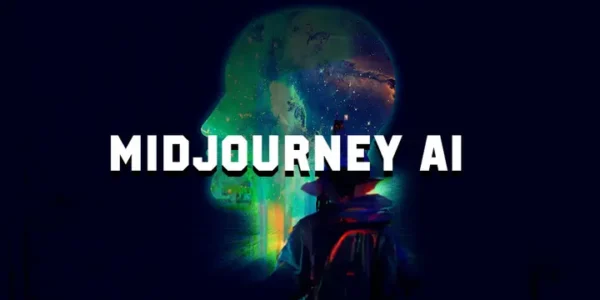
Text, Image, and Audio Generation
Text, Image, and Audio Generation
Generative AI techniques are extensively employed by businesses to create diverse media types based on text prompts. These techniques enable the generation of various content types, including photorealistic art and automated email responses, expanding creative possibilities.
These examples demonstrate the wide-ranging applications of AI technology today, enhancing efficiency, enabling automation, and facilitating innovative solutions in numerous domains.
Applications of AI
Artificial intelligence (AI) is being applied in various industries and sectors, revolutionizing the way tasks are performed. Here are 11 examples of AI applications
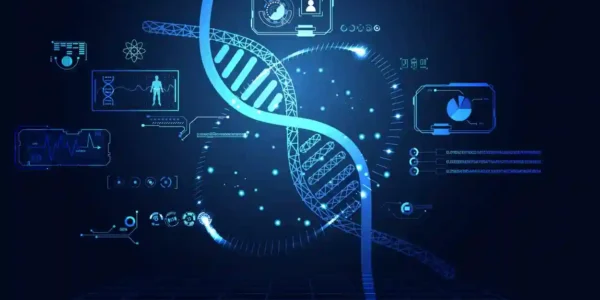
Healthcare
Healthcare
AI is used to improve medical diagnoses, analyze patient data, and assist in pandemic prediction and management. Technologies like IBM Watson enable natural language understanding and provide valuable insights to healthcare professionals. Virtual health assistants and chatbots assist patients with medical information and administrative processes.

Business
Business
Machine learning algorithms integrated into analytics and customer relationship management platforms enhance customer service. Chatbots on websites provide immediate support. Generative AI technologies like ChatGPT have implications for job automation, product design, and business model disruption.

Education
Education
AI automates grading, adapts to student needs, and provides personalized support. AI tutors assist students, and generative AI tools aid educators in creating course materials. The use of AI prompts reevaluation of homework, testing, and plagiarism policies.

Finance
Finance
AI disrupts personal finance applications, providing financial advice and streamlining processes like tax filing. AI software is utilized in trading on Wall Street.

Law
Law
AI helps automate labor-intensive processes in the legal industry, such as document analysis and information retrieval. Machine learning, computer vision, and natural language processing assist in data interpretation and predicting legal outcomes.

Entertainment and Media
Entertainment and Media
AI techniques contribute to targeted advertising, content recommendation, fraud detection, script creation, and movie-making. Automated journalism streamlines media workflows, automating routine tasks and assisting with research and headline creation.

Software Coding and IT Processes
Software Coding and IT Processes
Generative AI tools show potential for producing application code based on natural language prompts. AI automates IT processes like data entry, fraud detection, customer service, and predictive maintenance and security.

Manufacturing
Manufacturing
Robots have become collaborative robots (cobots) that work alongside humans, performing multiple tasks and improving efficiency on factory floors and in warehouses.

Banking
Banking
Chatbots assist customers with banking transactions, and AI virtual assistants help ensure compliance with regulations. AI aids in decision-making processes, such as loan evaluations, credit limits, and investment opportunities.
These examples demonstrate the diverse applications of AI across industries, enhancing efficiency, decision-making, and customer experiences.
AI(Artificial Intelligence) courses Offered by Diana’s

Diana Certified Artificial Intelligence Fundamentals
Overview
Discover the cutting-edge realm of artificial intelligence with the Diana Certified Artificial Intelligence Fundamentals course. This comprehensive program provides learners of all backgrounds with essential knowledge of AI concepts, technologies, and applications. From understanding the fundamentals and key AI concepts to exploring practical applications and ethical considerations, this self-paced course equips you to navigate the AI landscape confidently. Whether you’re a student, professional, or tech enthusiast, this course offers a pathway to grasp AI’s transformative potential and earn a coveted certification upon completion. Join us today and embark on a journey into the future of artificial intelligence.
Who is the Course For
This course is designed to cater to a diverse audience, including students, working professionals, entrepreneurs, and tech enthusiasts. Whether you are looking to kickstart your career in artificial intelligence, gain a deeper understanding of AI concepts, or simply explore the exciting world of AI, this course welcomes individuals from all backgrounds and expertise levels. No prior AI experience is required, making it accessible to anyone eager to learn about the fundamentals of artificial intelligence and its far-reaching impact across industries. Join us on this educational journey, and discover how AI can shape your future.
Tools We Use
In this course, we leverage a range of industry-standard tools and platforms to provide you with a hands-on and immersive learning experience. These tools are carefully selected to enhance your understanding and practical skills in artificial intelligence. Throughout the course, you will have the opportunity to work with:
Python: Python is the primary programming language for AI development, and we will use it extensively for coding exercises and projects.
Jupyter Notebooks: Jupyter Notebooks offer an interactive and user-friendly environment for experimenting with AI algorithms and models.
TensorFlow and PyTorch: These deep learning frameworks are essential for building and training neural networks.
Scikit-Learn: Scikit-Learn provides a robust library for machine learning tasks and model evaluation.
Natural Language Toolkit (NLTK): NLTK is used for natural language processing (NLP) exercises and text analysis.
OpenAI’s GPT-3: We explore the capabilities of state-of-the-art AI models like GPT-3 for language understanding and generation.
Google Colab: Google Colab allows for cloud-based Python development, enabling you to access powerful GPU resources for AI tasks.
Data Visualization Tools: We employ data visualization libraries such as Matplotlib and Seaborn to create informative charts and plots.
GitHub: GitHub serves as a collaborative platform for code sharing and version control, facilitating project collaboration.
Online AI Datasets: Access to publicly available AI datasets for machine learning and deep learning experiments.
These tools are carefully integrated into the course curriculum to provide you with practical experience and proficiency in AI development. As you progress through the course, you will become proficient in using these tools to tackle real-world AI challenges and projects effectively.
What You Will Learn
Throughout the Diana Certified Artificial Intelligence Fundamentals course, you will embark on a comprehensive learning journey that equips you with essential knowledge and practical skills in the field of artificial intelligence (AI). By the end of the course, you will have:
Foundational Understanding: Gained a clear and comprehensive understanding of what artificial intelligence is and its historical significance.
Key AI Concepts: Explored fundamental AI concepts, including machine learning, neural networks, natural language processing, and computer vision.
AI Applications: Discovered how AI is being applied across various industries, from healthcare and finance to entertainment and autonomous vehicles.
Practical Experience: Gained hands-on experience with AI through practical projects and exercises, allowing you to apply what you’ve learned.
Ethical Considerations: Examined the ethical implications of AI and responsible AI development, ensuring you can navigate AI’s societal impact.
Emerging Trends: Explored emerging AI trends and technologies, including deep learning and reinforcement learning, to stay informed about the future of AI.
Critical Thinking: Developed the ability to critically assess AI applications, recognizing both opportunities and challenges.
Certification: Earned the Diana Certified Artificial Intelligence Fundamentals certification, demonstrating your expertise and commitment to AI knowledge.
This course is designed to provide you with a strong foundation in AI, making it accessible to individuals of all backgrounds and expertise levels. Whether you’re looking to start a career in AI, enhance your existing knowledge, or simply explore the limitless possibilities of artificial intelligence, this course is your gateway to the world of AI innovation and transformation. Join us and unlock the potential of AI today.
Prerequisites for the Course
The Diana Certified Artificial Intelligence Fundamentals course is designed to be accessible to a broad audience, and as such, it has minimal prerequisites. To enroll and succeed in this course, you are encouraged to have the following:
Basic Computer Skills: A general familiarity with using computers and basic software applications is beneficial. You should be comfortable navigating operating systems and performing everyday tasks.
Internet Access: Access to the internet is essential to participate in the course, as it enables you to access course materials, resources, and online tools.
English Proficiency: The course content and materials are primarily presented in English. Therefore, a reasonable proficiency in English is recommended to understand and engage with the course content effectively.
Curiosity and Enthusiasm: An open mind, curiosity about artificial intelligence, and enthusiasm to learn are some of the most valuable prerequisites. No prior knowledge of AI is required.
Optional: Basic Programming Knowledge: While not mandatory, having some basic understanding of programming concepts and logic can be advantageous. However, the course includes introductory programming elements to help learners of all levels get started.
It’s important to note that this course is designed to accommodate learners from diverse backgrounds and expertise levels. Whether you’re a beginner or already have some familiarity with AI, this course is structured to provide you with a solid foundation and a rewarding learning experience. We encourage individuals from all walks of life to enroll and explore the world of artificial intelligence with us.

Diana Certified Machine Learning Specialist
Overview
The Diana Certified Machine Learning Specialist course is an intensive program designed to equip participants with the knowledge and skills needed to excel in the field of machine learning. Throughout this comprehensive course, students will delve into the fundamentals of machine learning algorithms, data preprocessing, model evaluation, and deployment strategies. With a strong emphasis on hands-on practical experience, learners will work on real-world projects, honing their ability to develop and deploy machine learning models effectively. This course covers a wide range of topics, including deep learning, natural language processing, and computer vision, ensuring participants are well-rounded specialists in the realm of machine learning upon completion.
Who is the Course For
This course is ideally suited for aspiring data scientists, software engineers, researchers, and professionals seeking to transition into the machine learning domain. It caters to individuals with varying levels of experience, from beginners looking to build a strong foundation in machine learning to intermediate practitioners aiming to enhance their skills and tackle more complex projects.
Tools We Use
In this course, participants will gain proficiency in a variety of essential tools and technologies, including popular programming languages like Python and libraries such as TensorFlow and scikit-learn. Students will also leverage Jupyter notebooks for interactive coding and version control systems like Git for collaborative project management. Additionally, cloud platforms like AWS and Azure will be utilized for model deployment and scalability.
What You Will Learn
Throughout this course, participants will acquire a deep understanding of core machine learning concepts, algorithms, and techniques. They will learn to preprocess and analyze data, build predictive and classification models, and evaluate model performance effectively. Furthermore, students will delve into advanced topics such as deep learning, reinforcement learning, and computer vision, gaining the skills needed to tackle cutting-edge projects in these domains. By the end of the course, participants will be proficient in deploying machine learning models, ensuring their practical relevance in real-world applications.
Prerequisites for the Course
To excel in this course, participants are expected to have a basic understanding of programming, preferably in Python, as well as a fundamental knowledge of mathematics and statistics, including concepts like linear algebra and probability. While prior experience in machine learning is not mandatory, a passion for data-driven problem-solving and a willingness to engage in hands-on coding and project work are essential prerequisites for success in this program.

Diana Certified NLP Practitioner
Overview
Welcome to the Diana Certified NLP Practitioner course, your gateway to mastering the art and science of Neuro-Linguistic Programming (NLP). In this comprehensive program, you will delve into the transformative world of NLP, equipping yourself with powerful techniques and strategies to enhance communication, personal growth, and professional development. Our course covers foundational NLP principles, practical applications in diverse fields, and hands-on exercises to help you become a certified NLP practitioner. Whether you’re a coach, therapist, educator, or simply eager to unlock the potential of human behavior and communication, this course offers a deep dive into NLP, empowering you to create positive change in both your own life and the lives of others.
Who is the Course For
This course is designed to cater to a wide range of individuals seeking to harness the power of Neuro-Linguistic Programming (NLP). It is ideal for aspiring NLP practitioners, coaches, therapists, educators, leaders, and anyone passionate about personal development and effective communication. Whether you’re new to NLP or looking to deepen your understanding and skills, this course welcomes learners from diverse backgrounds and experience levels. Join us on this transformative journey to become a certified NLP practitioner and make a positive impact on individuals and organizations alike.
Tools We Use
In the Diana Certified NLP Practitioner course, we utilize a set of practical tools and resources to facilitate your learning and application of NLP principles. These tools include NLP frameworks, guided exercises, case studies, and interactive communication techniques. Additionally, we recommend familiarizing yourself with note-taking tools and resources for self-reflection to maximize your learning experience.
What You Will Learn
Throughout this course, you will acquire a deep understanding of NLP concepts and practical skills, including rapport-building, effective communication, goal setting, and pattern recognition. You will learn how to apply NLP techniques to various contexts, such as personal development, coaching, therapy, and leadership. By the end of the course, you will be a certified NLP practitioner, equipped with the knowledge and tools to create positive transformations in yourself and others.
Prerequisites for the Course
To enroll in the Diana Certified NLP Practitioner course, all you need is a genuine interest in personal development, effective communication, and the desire to learn and apply NLP techniques. There are no specific prerequisites in terms of prior education or experience; this course is open to individuals of all backgrounds and expertise levels. Your curiosity and enthusiasm for exploring the realms of NLP are the most valuable prerequisites. Join us today and embark on your journey towards becoming a certified NLP practitioner.

Diana Certified AI Computer Vision Engineer
Overview
The “Diana Certified AI Computer Vision Engineer” course is an immersive and comprehensive program designed to equip aspiring professionals and AI enthusiasts with the knowledge and skills necessary to excel in the field of computer vision. This course delves deep into the world of artificial intelligence, image processing, and machine learning, providing a solid foundation in computer vision techniques, algorithms, and applications. Throughout the program, students will gain hands-on experience with cutting-edge tools and technologies, enabling them to develop AI-driven computer vision solutions for a wide range of real-world problems.
Who is the Course For
This course is ideal for individuals with a passion for artificial intelligence and computer vision, including computer science graduates, software engineers, data scientists, researchers, and anyone looking to enter or advance their career in the field. Whether you’re a seasoned professional seeking to specialize in computer vision or a newcomer eager to explore the exciting realm of AI, this course provides a structured learning path to suit your needs.
Tools We Use
Participants in the “Diana Certified AI Computer Vision Engineer” course will have the opportunity to work with an array of industry-standard tools and libraries, including but not limited to Python, OpenCV, TensorFlow, PyTorch, and various deep learning frameworks. These tools will be integrated into practical assignments and projects, allowing students to build hands-on expertise and stay at the forefront of AI and computer vision technology.
What You Will Learn
Throughout this course, you will embark on a journey to master computer vision fundamentals, image processing techniques, and advanced AI algorithms. Topics covered include image classification, object detection, image segmentation, facial recognition, and more. You will learn to design and implement computer vision models, analyze image data, and optimize algorithms for real-time applications. By the end of the course, you will possess the skills to develop AI-powered computer vision solutions that can revolutionize industries ranging from healthcare and automotive to security and entertainment.
Prerequisites for the Course
To fully engage with the material and succeed in this course, participants should have a solid understanding of programming fundamentals, preferably in Python. Additionally, a background in mathematics, particularly linear algebra and calculus, will be beneficial. While prior knowledge of machine learning concepts is advantageous, it is not mandatory, as the course covers foundational AI topics. A curious mind, a willingness to learn, and a passion for pushing the boundaries of computer vision are the most crucial prerequisites for this course.

Diana Certified Deep Reinforcement Learning Specialist
Overview
The Diana Certified Deep Reinforcement Learning Specialist course is an immersive and advanced program dedicated to cultivating expertise in the cutting-edge field of deep reinforcement learning. Over the course’s duration, participants will dive deep into the intricate workings of reinforcement learning algorithms, exploring their application in solving complex decision-making tasks, robotics, game playing, and autonomous systems. With a strong focus on practical implementation, students will develop hands-on proficiency in creating and fine-tuning deep reinforcement learning agents, leveraging state-of-the-art libraries and techniques. By the end of this comprehensive course, learners will be equipped with the knowledge and skills to excel in developing AI systems that can learn to make optimal decisions in dynamic environments.
Who is the Course For
This course is tailored for professionals, researchers, and AI enthusiasts who are already well-versed in machine learning and want to specialize in deep reinforcement learning. It’s ideal for individuals seeking to advance their career in areas such as autonomous robotics, self-driving cars, game AI development, and decision-making systems. Participants should have a strong foundation in machine learning concepts and a solid grasp of programming in Python.
Tools We Use
In this course, participants will gain proficiency in various tools and frameworks critical for deep reinforcement learning, including TensorFlow, PyTorch, and OpenAI Gym. Students will also work with simulation environments and libraries like Unity ML-Agents to develop and train reinforcement learning agents effectively. Git for version control and Jupyter notebooks for interactive coding will be employed to facilitate collaboration and project management.
What You Will Learn
Throughout this course, participants will delve into the core principles of reinforcement learning, covering topics such as Markov decision processes, Q-learning, policy gradients, and actor-critic methods. They will master the art of designing and training deep reinforcement learning agents to solve complex tasks and environments, including video games, robotic control, and autonomous decision-making scenarios. Advanced topics like continuous action spaces, deep neural networks, and imitation learning will be explored, enabling participants to tackle real-world reinforcement learning challenges and create intelligent, adaptive systems.
Prerequisites for the Course
To excel in this course, participants should have a strong foundation in machine learning concepts, including supervised and unsupervised learning. Proficiency in Python programming is essential. Prior experience with deep learning frameworks like TensorFlow or PyTorch is highly recommended. Familiarity with reinforcement learning basics, such as Markov decision processes and value functions, will be advantageous but not mandatory. A strong mathematical background, encompassing concepts like calculus and linear algebra, is essential for understanding the theoretical aspects of deep reinforcement learning. Students should also possess a passion for solving complex problems and a willingness to engage in hands-on coding, experimentation, and project work.

Diana Certified Deep Learning Architect
Overview
The Diana Certified Deep Learning Architect course is an intensive and advanced program meticulously crafted to nurture expertise in the intricate domain of deep learning architecture design. Throughout this comprehensive course, participants will explore the latest advancements in deep neural networks, convolutional and recurrent neural networks, generative adversarial networks, and more. With a strong emphasis on hands-on experience, students will engage in real-world projects and case studies, mastering the art of creating and optimizing complex deep learning models. By the end of this program, participants will be equipped with the knowledge and skills needed to architect and deploy state-of-the-art deep learning systems that excel in tasks ranging from image recognition and natural language processing to autonomous systems.
Who is the Course For
This course is tailored for experienced data scientists, machine learning engineers, researchers, and professionals aiming to become deep learning architects. It is ideal for individuals seeking to advance their careers in fields such as computer vision, speech recognition, and natural language understanding. Participants should already possess a strong foundation in machine learning and deep learning concepts and have proficiency in Python programming. This program is designed for those who are passionate about pushing the boundaries of AI and deep learning.
Tools We Use
In this course, participants will gain proficiency in a range of essential tools and frameworks vital for deep learning architecture design, including TensorFlow, PyTorch, and Keras. Students will also work with popular cloud platforms like AWS and Google Cloud for scalable model training and deployment. Version control using Git, collaborative coding in Jupyter notebooks, and the utilization of GPU resources for accelerating deep learning experiments will be integral to the course.
What You Will Learn
Throughout this course, participants will delve into advanced topics in deep learning, including model architecture design, transfer learning, hyperparameter tuning, and network optimization. They will acquire a deep understanding of convolutional neural networks (CNNs) for computer vision, recurrent neural networks (RNNs) for sequential data, and generative adversarial networks (GANs) for creating synthetic data. Participants will gain hands-on experience in fine-tuning pre-trained models, designing custom architectures for specific tasks, and deploying deep learning systems at scale. By the course’s conclusion, students will be adept at solving complex problems with deep learning and architecting state-of-the-art AI solutions.
Prerequisites for the Course
To excel in this course, participants are expected to have a strong foundation in machine learning and deep learning, including concepts like neural networks, gradient descent, and backpropagation. Proficiency in Python programming is essential, as the course involves extensive coding and model development. Prior experience with deep learning frameworks like TensorFlow or PyTorch is highly recommended. A solid understanding of linear algebra, calculus, and probability is essential for comprehending the mathematical underpinnings of deep learning architectures. Additionally, participants should have experience with data preprocessing, model evaluation, and basic knowledge of cloud computing platforms. A passion for tackling complex AI challenges and a commitment to hands-on project work are crucial prerequisites for success in this program.

Diana Certified AI Ethics Consultant
Overview
The Diana Certified AI Ethics Consultant course is a specialized program dedicated to equipping participants with the knowledge and expertise required to navigate the complex ethical considerations arising from the proliferation of artificial intelligence (AI) technologies. Throughout this comprehensive course, students will explore the ethical dimensions of AI, covering topics such as bias and fairness, transparency, accountability, and privacy. With a strong focus on practical ethics, learners will gain the skills to assess and mitigate ethical risks in AI systems, develop ethical AI guidelines, and engage in meaningful conversations with stakeholders to promote responsible AI adoption. By the end of this program, participants will be prepared to guide organizations and institutions in making ethically sound decisions regarding AI technologies and ensure AI aligns with societal values and norms.
Who is the Course For
This course is intended for professionals, policymakers, researchers, ethicists, and individuals passionate about AI ethics who are seeking to become AI ethics consultants or advisors. It is particularly relevant for those in roles related to AI governance, compliance, and ethics in industries such as technology, healthcare, finance, and government. Participants should have a background in ethics, law, technology, or related fields and a strong interest in addressing ethical challenges in the AI domain.
Tools We Use
In this course, participants will become proficient in various tools and frameworks essential for AI ethics assessment and implementation. These include AI auditing and fairness assessment tools, transparency and interpretability libraries, privacy-preserving technologies, and AI ethics frameworks. Students will also engage in practical case studies and discussions, utilizing ethical decision-making frameworks and guidelines.
What You Will Learn
Throughout this course, participants will delve into the ethical principles underpinning AI, including fairness, transparency, accountability, and privacy, and learn how to apply these principles to real-world AI systems. They will explore techniques for identifying and mitigating bias in AI algorithms, ensuring transparency in AI decision-making processes, and establishing accountability mechanisms for AI outcomes. The course will also cover the legal and regulatory landscape of AI ethics and provide guidance on engaging with diverse stakeholders, including policymakers, industry leaders, and the public, to facilitate ethical AI adoption. By the end of the program, students will be well-prepared to serve as ethical consultants, auditors, or advisors in the AI field.
Prerequisites for the Course
To succeed in this course, participants should have a foundational understanding of ethics and a strong interest in the ethical implications of AI technologies. A background in law, technology, or related fields is beneficial but not mandatory. Familiarity with basic AI concepts and terminology is advantageous. Participants should possess critical thinking and analytical skills, as well as the ability to evaluate and assess ethical issues in complex technological systems. A willingness to engage in ethical discussions, collaborate with diverse stakeholders, and advocate for responsible AI practices is essential. Additionally, a commitment to upholding ethical values and principles in AI adoption is highly encouraged.

Diana Certified AI Robotics Engineer
Overview
The Diana Certified AI Robotics Engineer course is an advanced program designed to empower participants with the skills and knowledge necessary to excel in the dynamic field of AI robotics engineering. Throughout this comprehensive course, students will delve into the core principles of robotics, AI perception, control systems, and robotic hardware. With a strong emphasis on hands-on practical experience, learners will engage in real-world projects, enabling them to design, build, and program intelligent robotic systems capable of autonomous decision-making, perception, and interaction. By the end of this program, participants will be well-equipped to tackle the most complex challenges in AI robotics and contribute to the advancement of automation and robotics technologies.
Who is the Course For
This course is tailored for individuals aspiring to become AI robotics engineers, researchers, and professionals looking to specialize in the field of robotics and artificial intelligence. It is ideal for those seeking to advance their careers in industries such as industrial automation, autonomous vehicles, healthcare robotics, and smart manufacturing. Participants should have a solid foundation in computer science and programming, as well as a keen interest in robotics and AI technologies.
Tools We Use
In this course, participants will gain proficiency in a range of essential tools and technologies necessary for AI robotics engineering. These include popular programming languages such as Python and C++, robotics middleware like ROS (Robot Operating System), simulation environments like Gazebo, and hardware platforms such as Arduino and Raspberry Pi. Students will also work with various sensors, actuators, and robotic kits to gain practical experience in building and controlling robotic systems.
What You Will Learn
Throughout this course, participants will explore topics such as robot kinematics, dynamics, and control algorithms, enabling them to understand and manipulate the physical behavior of robots. They will delve into AI perception techniques, including computer vision and sensor fusion, to equip robots with the ability to perceive and interact with their environment. Additionally, participants will learn about AI planning and decision-making algorithms for autonomous navigation and task execution. The course will also cover topics like human-robot interaction and ethical considerations in AI robotics. By the end of the program, students will be proficient in designing, building, and programming AI-driven robotic systems for a wide range of applications.
Prerequisites for the Course
To succeed in this course, participants should have a strong foundation in computer science and programming, particularly in languages like Python and C++. Familiarity with basic concepts in linear algebra, calculus, and probability is essential for understanding robotics algorithms. Prior experience with robotics or AI is helpful but not required. Participants should be comfortable with hardware components, electronics, and basic circuitry. A passion for robotics and artificial intelligence, coupled with a desire to solve real-world problems in automation and robotics, is crucial. Additionally, students should be prepared to engage in hands-on project work and collaboration with peers.

Diana Certified AI Healthcare Specialist
Overview
The “Diana Certified AI Healthcare Specialist” course is a comprehensive and specialized program designed to equip healthcare professionals, data scientists, and aspiring experts with the knowledge and skills necessary to harness the transformative power of artificial intelligence (AI) in the healthcare industry. This cutting-edge course explores the convergence of healthcare and AI, covering topics such as medical image analysis, predictive diagnostics, patient care optimization, and ethical considerations, enabling participants to become proficient in leveraging AI to enhance patient outcomes, streamline processes, and drive innovation in the healthcare sector.
Who is the Course For
This course is tailored for healthcare practitioners, including doctors, nurses, radiologists, and healthcare administrators, as well as data scientists, researchers, and technologists interested in revolutionizing healthcare through AI. It is ideal for those looking to apply AI technologies to improve diagnostics, treatment planning, patient monitoring, and administrative tasks in healthcare settings. Whether you aim to advance your career within the healthcare industry or embark on a transformative journey at the intersection of AI and healthcare, this course offers a structured pathway to meet your goals.
Tools We Use
Participants in the “Diana Certified AI Healthcare Specialist” course will work with a suite of state-of-the-art tools and technologies commonly employed in healthcare AI applications. These may include Python, popular machine learning and deep learning frameworks such as TensorFlow and PyTorch, medical imaging software like DICOM, and electronic health record (EHR) systems. Hands-on experience with these tools will empower students to develop AI solutions for tasks such as medical image analysis, patient risk prediction, and clinical decision support, all while adhering to healthcare data privacy and security standards.
What You Will Learn
Throughout this course, you will gain a deep understanding of AI’s transformative potential in healthcare, covering topics such as medical image analysis, disease prediction, drug discovery, and patient care optimization. You will acquire the skills to design and implement AI-driven healthcare solutions, including developing predictive models, automating routine tasks, and ensuring compliance with healthcare regulations and ethical guidelines. By the end of the course, you will be proficient in applying AI techniques to improve healthcare outcomes, reduce costs, and enhance patient experiences.
Prerequisites for the Course
To maximize your success in this course, a background in healthcare, life sciences, or related fields is beneficial but not mandatory. Participants should have a basic understanding of data analysis and programming, preferably in Python. While prior knowledge of machine learning and AI concepts is advantageous, it is not required, as the course covers foundational AI topics specific to healthcare. Above all, a passion for advancing healthcare through innovative AI applications and a commitment to ethical considerations in healthcare AI are essential prerequisites for this course.

Diana Certified AI Business Strategist
Overview
The Diana Certified AI Business Strategist course is a specialized program designed to equip participants with the knowledge and skills needed to harness the transformative power of artificial intelligence (AI) within the context of business strategy. Throughout this comprehensive course, students will explore AI technologies, their applications, and their strategic implications for organizations. With a strong focus on practical insights and case studies, learners will gain the ability to identify AI opportunities, formulate AI-driven business strategies, and lead AI implementation initiatives. By the end of this program, participants will be well-prepared to guide organizations in leveraging AI for competitive advantage, growth, and innovation.
Who is the Course For
This course is tailored for business professionals, managers, entrepreneurs, and decision-makers across industries who aim to leverage AI as a strategic asset for their organizations. It is ideal for those seeking to understand how AI can drive business growth, improve decision-making processes, and enhance customer experiences. Participants should have a background in business management, strategy, or related fields and a keen interest in the strategic implications of AI technologies.
Tools We Use
In this course, participants will gain a deep understanding of various AI technologies, including machine learning, natural language processing, and computer vision. While the course does not require specific technical tools, participants will become familiar with AI development and deployment tools and platforms, AI strategy frameworks, and AI implementation best practices. Students will also explore AI-driven business intelligence tools and analytics platforms for data-driven decision-making.
What You Will Learn
Throughout this course, participants will delve into the strategic aspects of AI, covering topics such as AI landscape analysis, AI adoption frameworks, and the development of AI-driven business models. They will learn how to identify AI opportunities within their organizations, assess the feasibility of AI projects, and develop AI strategies aligned with business goals. The course will also explore ethical and regulatory considerations related to AI and provide insights into risk management and governance in AI initiatives. By the end of the program, participants will be equipped to create and execute AI strategies that drive business success.
Prerequisites for the Course
To excel in this course, participants are expected to have a foundational understanding of business management and strategy. While technical expertise in AI is not required, a basic familiarity with AI concepts and terminology is beneficial. Participants should have experience working in business or related roles and possess strong analytical and problem-solving skills. An open mindset for learning and a willingness to explore the strategic implications of AI in a business context are essential. Additionally, a commitment to applying course learnings to real-world business scenarios and driving AI initiatives within organizations is highly encouraged.

Diana Certified AI Big Data Analyst
Overview
The Diana Certified AI Computer Vision Engineer course is a specialized and comprehensive program designed to empower participants with the skills and expertise required to excel in the exciting field of computer vision. Throughout this course, students will delve into the core principles of computer vision, exploring topics such as image classification, object detection, image segmentation, and facial recognition. With a strong emphasis on hands-on practical experience, learners will work on real-world computer vision projects, mastering the art of designing and deploying AI-driven vision systems. By the end of this program, participants will be equipped to develop advanced computer vision applications, from self-driving cars and medical image analysis to facial recognition systems and augmented reality.
Who is the Course For
The Diana Certified AI Big Data Analyst course is ideally suited for individuals who want to pursue a career in big data analytics and are interested in leveraging artificial intelligence to derive valuable insights from large datasets. This course is suitable for:
Data Analysts: Data professionals looking to enhance their skills in handling and analyzing big data to uncover actionable insights.
Business Analysts: Professionals seeking to make data-driven decisions and provide valuable insights to improve business strategies and outcomes.
Aspiring Data Scientists: Individuals on a path to becoming data scientists who want to build a strong foundation in big data analytics.
IT Professionals: IT specialists interested in transitioning into data analytics roles within organizations dealing with large datasets.
Managers and Decision-Makers: Business leaders who want to understand the potential of big data and AI to drive informed decisions and gain a competitive edge.
Researchers: Those involved in academic or industry research who need to analyze and extract insights from large datasets.
Anyone Interested in Data Analytics: Enthusiasts who are passionate about data analytics and want to develop expertise in big data analysis and AI-driven insights.
This course is designed to accommodate a wide range of backgrounds and skill levels, making it accessible to both beginners and professionals looking to enhance their big data analytics capabilities and embrace AI in their data-driven journey.
Tools We Use
In the Diana Certified AI Big Data Analyst course, participants will become proficient in a variety of essential tools and technologies for big data analytics, including Hadoop, Spark, Python, SQL, and data visualization libraries like Matplotlib and Seaborn. They will also leverage machine learning frameworks such as scikit-learn and TensorFlow for predictive modeling and analysis. Additionally, participants will work with big data processing platforms like Apache Hive and Apache Pig to handle and query large datasets efficiently.
What You Will Learn
Throughout this course, participants will acquire a deep understanding of big data concepts, including data storage, processing, and analysis. They will explore data preprocessing techniques, feature engineering, and data cleaning to prepare large datasets for analysis. Students will delve into machine learning algorithms for classification, regression, clustering, and recommendation systems, gaining the skills to apply these algorithms to real-world big data challenges. The course will also cover data visualization methods and best practices for communicating insights effectively to stakeholders. By the end of the program, participants will be proficient in big data analytics and prepared to harness the power of AI in making data-driven decisions.
Prerequisites for the Course
To excel in the Diana Certified AI Big Data Analyst course, participants should have a solid foundation in programming, preferably in Python, and familiarity with data manipulation and analysis using libraries like Pandas. Basic knowledge of statistics and mathematics is beneficial, as these concepts will be integral to understanding and applying machine learning algorithms. No prior experience with big data technologies is required, but participants should be eager to learn and engage in hands-on projects involving large datasets. A passion for data-driven decision-making and problem-solving is essential, as participants will work on real-world big data analytics tasks throughout the course.

Diana Certified AI Recommender Systems Expert
Overview
The Diana Certified AI Recommender Systems Expert course is a specialized and comprehensive program designed to empower participants with the knowledge and skills required to excel in the dynamic field of recommender systems. Throughout this course, students will delve into the principles of recommender systems, exploring topics such as collaborative filtering, content-based filtering, matrix factorization, and deep learning-based recommendation algorithms. With a strong emphasis on hands-on practical experience, learners will work on real-world recommender system projects, mastering the art of designing, building, and optimizing AI-driven recommendation engines. By the end of this program, participants will be well-prepared to create highly effective and personalized recommender systems that drive user engagement and enhance the user experience in various domains.
Who is the Course For
This course is tailored for data scientists, machine learning engineers, software developers, and professionals seeking to specialize in the field of recommender systems. It is ideal for individuals looking to advance their careers in industries such as e-commerce, entertainment, content delivery, and online advertising, where recommendation engines play a pivotal role in enhancing user satisfaction and driving business growth. Participants should have a strong foundation in machine learning and a keen interest in understanding how recommender systems can be leveraged to provide personalized recommendations to users.
Tools We Use
In the Diana Certified AI Recommender Systems Expert course, participants will become proficient in a variety of essential tools and technologies crucial for building and evaluating recommender systems. These include popular machine learning frameworks like scikit-learn, TensorFlow, and PyTorch, as well as libraries for data preprocessing and analysis such as Pandas and NumPy. Participants will also work with recommendation-specific libraries and platforms for collaborative filtering and content-based recommendation. Access to cloud-based services for deploying and scaling recommender systems may be beneficial for hands-on projects.
What You Will Learn
Throughout this course, participants will gain a deep understanding of recommender system concepts, covering topics such as user-item interactions, recommendation algorithms, evaluation metrics, and cold-start problems. They will learn how to design and implement collaborative filtering algorithms, content-based filtering models, and hybrid recommendation systems that combine multiple recommendation techniques. The course will also explore advanced topics in recommender systems, including matrix factorization, deep learning-based recommendation, and reinforcement learning for personalized recommendations. By the end of the program, students will be proficient recommender system experts, capable of designing and optimizing recommendation engines that provide valuable, tailored suggestions to users.
Prerequisites for the Course
To excel in the Diana Certified AI Recommender Systems Expert course, participants should have a strong foundation in machine learning concepts, including supervised and unsupervised learning, as well as proficiency in programming, preferably in Python. Familiarity with data preprocessing and analysis libraries such as Pandas and NumPy is beneficial. Prior experience with machine learning frameworks like scikit-learn or deep learning frameworks like TensorFlow or PyTorch is recommended. A basic understanding of linear algebra, calculus, and probability is essential for comprehending the mathematical underpinnings of recommender system algorithms. Participants should also have experience with data manipulation, model evaluation, and the ability to work with real-world datasets. A passion for delivering personalized recommendations and enhancing user experiences is crucial for success in this program.

Diana Certified AI Autonomous Vehicle Engineer
Overview
The “Diana Certified AI Autonomous Vehicle Engineer” course is an advanced and specialized program designed to equip individuals with the knowledge and expertise required to develop cutting-edge autonomous vehicle technologies. This immersive course delves deep into the fields of artificial intelligence, robotics, computer vision, and control systems, enabling participants to design, build, and program autonomous vehicles that can navigate complex real-world environments safely and efficiently. Throughout the program, students will gain hands-on experience with industry-standard tools, simulations, and hardware, making them proficient in the rapidly evolving field of autonomous driving.
Who is the Course For
This course is tailored for engineers, researchers, software developers, and automotive enthusiasts who are passionate about the future of autonomous vehicles. It is ideal for individuals seeking to specialize in autonomous vehicle technology or advance their careers in fields related to self-driving cars, such as robotics, computer vision, and AI. Whether you’re a seasoned professional in the automotive industry or an aspiring engineer eager to contribute to the autonomous vehicle revolution, this course offers a comprehensive learning path to meet your technical and career objectives.
Tools We Use
Participants in the “Diana Certified AI Autonomous Vehicle Engineer” course will have access to a range of essential tools and technologies, including but not limited to ROS (Robot Operating System), Python, machine learning libraries, sensor simulations (LiDAR, cameras, radar), autonomous vehicle hardware platforms (e.g., NVIDIA Jetson), and software frameworks for perception, localization, and control. These tools will be integrated into hands-on projects and simulations, enabling students to gain practical experience in developing and testing autonomous driving algorithms.
What You Will Learn
Throughout this course, you will explore the core principles and advanced techniques required for autonomous vehicle development, covering areas such as sensor fusion, localization, path planning, control systems, and AI-driven decision-making. You will learn to build and deploy AI models for object detection, recognition, and tracking, enabling vehicles to perceive their surroundings accurately. Additionally, the curriculum focuses on implementing algorithms for vehicle localization, route planning, and vehicle control, fostering the ability to create end-to-end autonomous driving systems. By the end of the course, you will possess the skills to develop and optimize autonomous vehicle software and contribute to the advancement of self-driving technology.
Prerequisites for the Course
To excel in this course, participants should have a strong background in computer science, engineering, or a related field, with proficiency in programming languages such as Python and C++. Familiarity with machine learning and deep learning concepts is advantageous but not mandatory, as the course covers these topics in detail. A solid understanding of mathematics, particularly linear algebra and calculus, is essential for grasping the underlying principles of autonomous vehicle technology. Moreover, a passion for autonomous vehicles and a dedication to solving complex challenges in this field are crucial prerequisites. Whether you are a seasoned engineer or a motivated newcomer, a commitment to advancing the future of autonomous driving is paramount for success in this program.

Diana Certified AI Game Developer
Overview
The “Diana Certified AI Game Developer” course is a dynamic and specialized program designed to equip individuals with the skills and knowledge required to infuse artificial intelligence (AI) into video game development. This immersive course combines the realms of gaming and AI, enabling participants to create immersive and intelligent gaming experiences. Throughout the program, students will explore AI-driven game mechanics, adaptive storytelling, character behavior, procedural content generation, and more, allowing them to craft innovative, engaging, and intellectually stimulating games.
Who is the Course For
This course is tailored for aspiring game developers, programmers, AI enthusiasts, and anyone passionate about the intersection of gaming and AI. It is ideal for those looking to enhance their game development skills with AI techniques or transition into the field of AI game development. Whether you aspire to work in the gaming industry or desire to create AI-powered games as an independent developer, this course offers a comprehensive learning path to fulfill your creative and technical ambitions.
Tools We Use
Participants in the “Diana Certified AI Game Developer” course will have the opportunity to work with a range of industry-standard game development tools and AI libraries, including game engines such as Unity or Unreal Engine, programming languages like C# or C++, and AI frameworks like TensorFlow or PyTorch. Additionally, specialized game development tools for AI behavior modeling, pathfinding, and game physics will be explored. These tools will be integrated into practical game development projects, allowing students to gain hands-on experience in building AI-driven games.
What You Will Learn
Throughout this course, you will delve into the fascinating world of AI game development, covering topics such as AI agents, decision trees, pathfinding algorithms, procedural content generation, and natural language processing for in-game dialogues. You will acquire the skills to create NPCs with intelligent behaviors, design adaptive game environments, and craft AI-driven narratives that respond dynamically to player actions. The curriculum also emphasizes optimizing game performance, integrating AI seamlessly into game mechanics, and addressing common challenges in AI game development, making you proficient in delivering captivating and interactive gaming experiences.
Prerequisites for the Course
While there are no strict prerequisites for this course, a fundamental understanding of programming concepts is beneficial, and experience with a programming language like Python, C#, or C++ is advantageous. Familiarity with game development fundamentals is also useful but not required, as the course covers AI techniques specific to gaming. Most importantly, a passion for both gaming and artificial intelligence, coupled with a creative mindset and a desire to bring innovative AI-powered games to life, are the key prerequisites for success in this program. Whether you’re a novice or an experienced developer, your enthusiasm for AI game development is what matters most.

Diana Certified AI for Social Good Practitioner
Overview
The “Diana Certified AI for Social Good Practitioner” course is a transformative program aimed at empowering individuals with the knowledge and skills to leverage artificial intelligence (AI) for positive social impact. In a world grappling with complex societal challenges, this course focuses on harnessing AI’s potential to address issues such as poverty, healthcare disparities, environmental conservation, and more. Participants will gain expertise in applying AI technologies to create innovative solutions that can drive positive change and address pressing global issues, making a tangible impact on society.
Who is the Course For
This course is intended for a diverse audience, including AI enthusiasts, data scientists, social entrepreneurs, nonprofit professionals, policymakers, and anyone passionate about using AI to address social and environmental challenges. It is ideal for those looking to apply AI skills to create meaningful change, whether you’re a tech professional seeking to shift your career focus or a social advocate aiming to integrate AI into your initiatives. This course provides a structured pathway for individuals seeking to combine their technical expertise with a commitment to social good.
Tools We Use
The “Diana Certified AI for Social Good Practitioner” course utilizes a variety of tools and technologies to enable participants to develop and deploy AI solutions for social impact. Key tools may include Python, machine learning frameworks such as TensorFlow and PyTorch, data visualization tools, cloud computing platforms, and specialized software for data collection and analysis. Students will have access to resources that facilitate data-driven decision-making, collaboration with nonprofits and social enterprises, and the development of AI projects with meaningful social outcomes
What You Will Learn
Throughout this course, participants will gain a deep understanding of the intersection between AI and social good, covering topics such as data for social impact, ethical considerations, and project management for social AI initiatives. You will acquire the skills to identify relevant societal challenges, collect and analyze data, design AI-driven solutions, and communicate results effectively to stakeholders. The curriculum includes case studies and real-world examples of AI applications in areas such as healthcare, education, disaster response, and sustainability, allowing you to develop the expertise to create positive change in your chosen domain.
Prerequisites for the Course
While there are no strict prerequisites for this course, a basic understanding of programming concepts and familiarity with Python will be beneficial. Additionally, an interest in societal issues and a commitment to using AI for social good are essential prerequisites. This course is designed to be accessible to individuals from various backgrounds, including those with limited technical experience but a strong desire to make a meaningful impact on the world. Whether you have a technical or non-technical background, a passion for social good and a willingness to learn are the primary requirements for success in this program.

Diana Certified GANs Expert
Overview
The Diana Certified GANs Expert course is an advanced and specialized program dedicated to nurturing expertise in Generative Adversarial Networks (GANs), a cutting-edge technology in the field of artificial intelligence. Throughout this comprehensive course, students will explore the theory and practical applications of GANs, including image generation, style transfer, data augmentation, and more. With a strong emphasis on hands-on experience, learners will work on real-world GAN projects, mastering the art of designing, training, and optimizing GAN models. By the end of this program, participants will be well-prepared to develop and deploy GAN-based solutions for a wide range of creative and data-driven applications.
Who is the Course For
This course is ideal for experienced data scientists, machine learning engineers, computer vision specialists, and researchers who are looking to deepen their expertise in GANs and expand their skill set to include generative models. It is also suitable for professionals in creative industries, such as graphic designers, artists, and content creators, interested in using GANs to generate innovative and unique visual content. Participants should have a strong foundation in machine learning and deep learning concepts, including neural networks and backpropagation.
Tools We Use
In the Diana Certified GANs Expert course, participants will become proficient in a variety of essential tools and technologies for working with GANs, including deep learning frameworks like TensorFlow and PyTorch. They will utilize popular GAN architectures and libraries such as DCGAN, CycleGAN, and StyleGAN. Additionally, students will work with image processing and manipulation tools to create and refine GAN-generated content. GANs training often requires significant computational resources, so access to GPUs or cloud computing platforms may be beneficial for completing hands-on exercises and projects.
What You Will Learn
Throughout this course, participants will gain a deep understanding of GANs, covering topics such as the GAN architecture, training techniques, loss functions, and variations of GANs like conditional GANs and Wasserstein GANs. They will learn how to create realistic and high-quality synthetic data, generate images and artwork, and apply GANs for style transfer and image-to-image translation tasks. The course will also explore ethical considerations in GAN applications, such as deepfake generation, and provide guidance on responsible and creative uses of GAN technology. By the end of the program, students will be proficient GAN experts, capable of using GANs to innovate in various domains.
Prerequisites for the Course
To excel in the Diana Certified GANs Expert course, participants should have a strong foundation in machine learning and deep learning concepts, including neural networks, backpropagation, and gradient descent. Proficiency in Python programming is essential, as the course involves extensive coding and model development. Familiarity with deep learning frameworks like TensorFlow or PyTorch is highly recommended. A solid understanding of linear algebra, calculus, and probability is essential for comprehending the mathematical underpinnings of GANs. Participants should also have experience with data preprocessing and model evaluation. Additionally, a passion for creative applications of AI and a commitment to ethical considerations in GAN usage are crucial prerequisites for success in this program.

Diana Certified Explainable AI Practitioner
Overview
The “Diana Certified Explainable AI Practitioner” course is a specialized program designed to equip individuals with the expertise to navigate and implement explainable artificial intelligence (XAI) solutions effectively. In an era where AI systems are becoming increasingly complex, opaque, and integrated into our daily lives, this course focuses on the critical need for transparency and interpretability in AI models. Participants will gain in-depth knowledge of XAI techniques, enabling them to design, develop, and assess AI systems that provide understandable and trustable outputs, essential for applications ranging from finance to healthcare and beyond.
Who is the Course For
This course is tailored for AI practitioners, data scientists, machine learning engineers, ethicists, and professionals in industries where AI decision-making is pivotal. It is ideal for individuals seeking to enhance their AI models’ interpretability and transparency, ensuring ethical, regulatory, and stakeholder compliance. Whether you’re a data scientist looking to make your models more interpretable or a decision-maker in a sector adopting AI, this course offers the tools and knowledge needed to excel in the evolving landscape of XAI.
Tools We Use
The “Diana Certified Explainable AI Practitioner” course leverages various open-source libraries and frameworks to facilitate XAI model development and evaluation. Commonly used tools include Python, scikit-learn, LIME (Local Interpretable Model-agnostic Explanations), SHAP (SHapley Additive exPlanations), and interpretable machine learning libraries. Students will also gain exposure to specialized tools designed for visualizing and explaining complex machine learning models, enhancing their ability to apply XAI principles effectively.
What You Will Learn
Throughout this course, participants will delve into the foundations of explainable AI, covering topics such as model interpretability, feature importance, model-agnostic methods, and ethical considerations in AI. You will develop the skills to interpret black-box AI models, generate meaningful explanations for model decisions, and communicate AI insights effectively to both technical and non-technical stakeholders. Additionally, the course will explore XAI techniques such as surrogate models, counterfactual explanations, and rule-based approaches, providing a comprehensive understanding of how to make AI systems more transparent, trustworthy, and accountable.
Prerequisites for the Course
While there are no strict prerequisites for this course, participants should possess a basic understanding of machine learning concepts and be proficient in Python programming. Familiarity with common machine learning libraries, such as scikit-learn, is advantageous. Moreover, a curiosity for AI interpretability and a commitment to ethical AI practices are crucial prerequisites, as this course focuses on integrating transparency and accountability into AI models. Whether you have experience in AI development or are relatively new to the field, a passion for making AI more understandable and explainable is the key to success in this program.

Diana Certified Natural Language Generation Engineer
Overview
The Diana Certified Natural Language Generation Engineer course is a specialized and intensive program designed to empower participants with the knowledge and skills needed to excel in the field of natural language generation (NLG). Throughout this comprehensive course, students will dive deep into NLG principles, exploring topics such as text generation models, language understanding, and NLG applications in chatbots, content generation, and data reporting. With a strong emphasis on hands-on practical experience, learners will work on real-world NLG projects, mastering the art of creating AI-driven systems that can generate human-like text from data. By the end of this program, participants will be well-prepared to leverage NLG for various applications, from automating content creation to enhancing user experiences.
Who is the Course For
This course is tailored for data scientists, machine learning engineers, natural language processing (NLP) specialists, content creators, and professionals looking to specialize in NLG. It is ideal for individuals seeking to advance their careers in industries such as marketing, journalism, customer service, and data analysis, where NLG technologies are increasingly important for automating text-based tasks and generating human-like content. Participants should have a foundational understanding of NLP concepts and a strong interest in harnessing NLG for text generation.
Tools We Use
In the Diana Certified Natural Language Generation Engineer course, participants will become proficient in a range of essential tools and technologies for NLG. These include natural language processing libraries and frameworks such as NLTK, spaCy, and Transformers (e.g., GPT-3). Students will also work with text generation platforms and NLG tools that enable the development of custom NLG solutions. Additionally, familiarity with programming languages such as Python for text preprocessing and data manipulation may be required for hands-on projects.
What You Will Learn
Throughout this course, participants will gain a deep understanding of NLG concepts and techniques, including text generation models like recurrent neural networks (RNNs) and transformer-based models. They will explore the process of creating NLG systems that can generate coherent and contextually relevant text from structured data or templates. The course will cover NLG applications in chatbots, content generation, data reporting, and more, with a focus on practical implementation. Participants will also learn about ethical considerations in NLG, including bias and fairness in text generation. By the end of the program, students will be proficient NLG engineers capable of designing and deploying NLG solutions for a wide range of text generation tasks.
Prerequisites for the Course
To excel in the Diana Certified Natural Language Generation Engineer course, participants should have a foundational understanding of natural language processing (NLP) concepts, including text preprocessing, tokenization, and basic language modeling. Proficiency in programming, particularly in Python, is essential, as the course involves coding and building NLG systems. Familiarity with machine learning and deep learning concepts is beneficial but not mandatory, as the course will provide instruction on NLG in the context of text generation. Participants should also have experience with NLP libraries and tools and be comfortable working with textual data. A passion for creative text generation and a commitment to ethical considerations in NLG are crucial prerequisites for success in this program.

Diana Certified Edge AI Developer
Overview
The “Diana Certified Edge AI Developer” course is a specialized and hands-on program designed to equip individuals with the skills and expertise needed to develop cutting-edge Edge AI applications. In a world where data processing and decision-making increasingly happen at the edge of the network, this course explores the intersection of artificial intelligence (AI) and edge computing. Participants will gain in-depth knowledge of Edge AI principles, including model optimization, deployment on resource-constrained devices, and real-time inferencing. Through practical projects and real-world examples, students will become proficient in building AI applications that operate efficiently and autonomously at the edge of the network.
Who is the Course For
This course is ideal for software developers, engineers, IoT enthusiasts, and anyone passionate about harnessing the power of AI at the edge. It is tailored for individuals seeking to enhance their skills in Edge AI development or those interested in applying AI to edge devices, such as drones, IoT devices, robotics, and smart sensors. Whether you are a seasoned developer looking to specialize in Edge AI or a newcomer eager to explore the exciting field of edge computing, this course offers a structured learning path to align your expertise with the growing demands of the Edge AI industry.
Tools We Use
Participants in the “Diana Certified Edge AI Developer” course will have access to a range of essential tools and technologies used in Edge AI development. Commonly used tools include programming languages like Python and C++, machine learning frameworks like TensorFlow and PyTorch, and deployment platforms such as TensorFlow Lite, ONNX Runtime, and NVIDIA Jetson for accelerated inferencing. Additionally, the course introduces edge hardware platforms and edge-friendly development environments to enable students to develop and test Edge AI applications effectively.
What You Will Learn
Throughout this course, you will delve into the core principles of Edge AI, covering topics such as model quantization, pruning, and compression for resource-constrained devices, as well as real-time inferencing, optimization for low latency, and power-efficient AI computing. You will acquire the skills to develop and deploy AI models on edge devices, enabling them to make intelligent decisions locally without relying on cloud-based processing. The curriculum also includes hands-on projects focused on real-world Edge AI applications, such as object detection on edge cameras, voice recognition on IoT devices, and autonomous navigation for drones. By the end of the course, you will possess the expertise to build and deploy efficient and responsive Edge AI solutions.
Prerequisites for the Course
To excel in this course, participants should have a strong foundation in programming and be proficient in at least one programming language, preferably Python or C++. Familiarity with machine learning and deep learning concepts is advantageous but not mandatory, as the course covers these topics in depth. Additionally, a basic understanding of hardware and embedded systems is beneficial but not required. Most importantly, a passion for Edge AI, a curiosity for optimizing AI for resource-constrained devices, and a dedication to exploring the potential of edge computing are the key prerequisites for success in this program. Whether you have a technical background or are relatively new to the field, your enthusiasm for Edge AI development is what matters most.

Diana Certified AI Cybersecurity Professional
Overview
The Diana Certified AI Cybersecurity Professional course is an advanced and specialized program meticulously crafted to equip participants with the knowledge and skills essential to excel in the dynamic field of AI-driven cybersecurity. Throughout this comprehensive course, students will explore the intersection of artificial intelligence and cybersecurity, diving into topics such as threat detection, intrusion detection, anomaly detection, and malware analysis. With a strong emphasis on hands-on practical experience, learners will work on real-world cybersecurity projects, mastering the art of leveraging AI to protect critical systems and networks. By the end of this program, participants will be well-prepared to become cybersecurity experts capable of using AI to proactively defend against emerging threats and secure digital environments effectively.
Who is the Course For
This course is designed for cybersecurity professionals, IT specialists, network administrators, and individuals aspiring to specialize in the field of AI-driven cybersecurity. It is ideal for those seeking to advance their careers in industries such as information security, risk management, and compliance, where the integration of AI technologies is becoming increasingly critical. Participants should have a strong foundation in cybersecurity concepts and practices and a keen interest in harnessing AI to enhance security measures and protect against cyber threats.
Tools We Use
In the Diana Certified AI Cybersecurity Professional course, participants will become proficient in a range of essential tools and technologies vital for AI-enhanced cybersecurity. These include cybersecurity and network monitoring tools, such as Wireshark and Snort, as well as AI-driven cybersecurity platforms and solutions. Students will also work with machine learning libraries and frameworks for building custom threat detection and anomaly detection models. Additionally, familiarity with security information and event management (SIEM) systems and cloud security platforms may be beneficial for hands-on projects and exercises.
What Will You Learn
Throughout this course, participants will gain a deep understanding of cybersecurity principles and the role of AI in enhancing threat detection and response. They will explore topics such as network traffic analysis, behavior-based anomaly detection, and machine learning-driven threat intelligence. The course will cover the application of AI algorithms for identifying and mitigating security vulnerabilities, as well as leveraging AI for real-time threat detection and incident response. Participants will also learn about ethical hacking and penetration testing, with a focus on utilizing AI to identify vulnerabilities and assess security postures. By the end of the program, students will be proficient AI cybersecurity professionals capable of defending against cyber threats with the power of AI.
Prerequisites for the Course
To excel in the Diana Certified AI Cybersecurity Professional course, participants should have a foundational understanding of cybersecurity concepts, including network security, encryption, and security protocols. Proficiency in programming and scripting languages, particularly Python, is essential, as the course involves coding and building AI-driven security solutions. Familiarity with basic machine learning concepts is beneficial but not mandatory, as the course will provide instruction on AI in the context of cybersecurity. Participants should also have experience with cybersecurity tools and technologies and be comfortable with network protocols and architecture. A passion for cybersecurity and a commitment to staying updated on the latest cyber threats and defense strategies are crucial prerequisites for success in this program.

Diana Certified AI Financial Services Specialist
Overview
The “Diana Certified AI Financial Services Specialist” course is a specialized and comprehensive program designed to equip finance professionals, data scientists, and individuals interested in the financial industry with the knowledge and skills to leverage artificial intelligence (AI) for transformative applications in finance. This course explores the convergence of AI, machine learning, and finance, covering topics such as algorithmic trading, risk management, fraud detection, credit scoring, and financial forecasting. Through practical applications and real-world scenarios, participants will gain expertise in using AI to enhance decision-making, optimize financial strategies, and navigate the evolving landscape of AI-powered financial services.
Who is the Course For
This course is tailored for financial analysts, investment professionals, data analysts, fintech enthusiasts, and individuals seeking to enhance their careers in the financial services sector by harnessing AI technologies. It is ideal for those looking to leverage AI to improve financial decision-making, develop trading algorithms, manage risk, and innovate within traditional financial institutions or fintech startups. Whether you are a finance professional looking to add AI skills to your toolkit or a data scientist interested in financial applications, this course provides a structured learning path to align your expertise with the evolving demands of the finance industry.
Tools We Use
Participants in the “Diana Certified AI Financial Services Specialist” course will have access to a range of industry-standard tools and technologies used in financial AI applications. Commonly used tools include programming languages like Python and R, machine learning frameworks such as TensorFlow and scikit-learn, and data analysis libraries. Moreover, financial data sources and APIs will be introduced to enable students to gather and analyze real financial data. The course also explores specialized software and platforms designed for algorithmic trading, risk assessment, and financial modeling.
What You Will Learn
Throughout this course, you will delve into the intricate relationship between AI and finance, covering topics such as predictive modeling for stock prices, credit risk assessment, fraud detection, portfolio optimization, and algorithmic trading strategies. You will gain the skills to design and implement AI-driven financial models, analyze financial data for insights, and make informed investment decisions. The curriculum emphasizes understanding and addressing the unique challenges and ethical considerations in applying AI to financial services. By the end of the course, you will be proficient in leveraging AI to enhance financial decision-making processes and stay at the forefront of innovation in the financial sector.
Prerequisites for the Course
To succeed in this course, participants should have a strong foundation in finance, economics, or related fields and possess basic programming skills, preferably in Python or R. Familiarity with machine learning and data analysis concepts is advantageous but not required, as the course covers these topics in detail. Additionally, a solid understanding of mathematics, particularly statistics and probability, is essential for comprehending financial modeling and risk assessment techniques. Above all, a keen interest in the intersection of AI and finance, coupled with a commitment to ethical considerations in financial AI applications, are crucial prerequisites. Whether you have a finance background or come from a technical field, your passion for financial AI innovation is the key to success in this program.